Here are my favorite poems about rainbows categorized:
- Short poems about rainbows
- Poems about rainbows and hope
- Rainbow poems that rhyme
- Poems about rainbows and death
- Poems about rainbows and love
So if you want the best poems about rainbows, then you’re in the right place.
Let’s get started!
- 37 Adrenaline-Pumping Poems About Pearls
- 25 Enjoyable Poems About Seashells
- 153 Serene Poems About Rivers
- 43 Wave-Kissed Poems About the Ocean
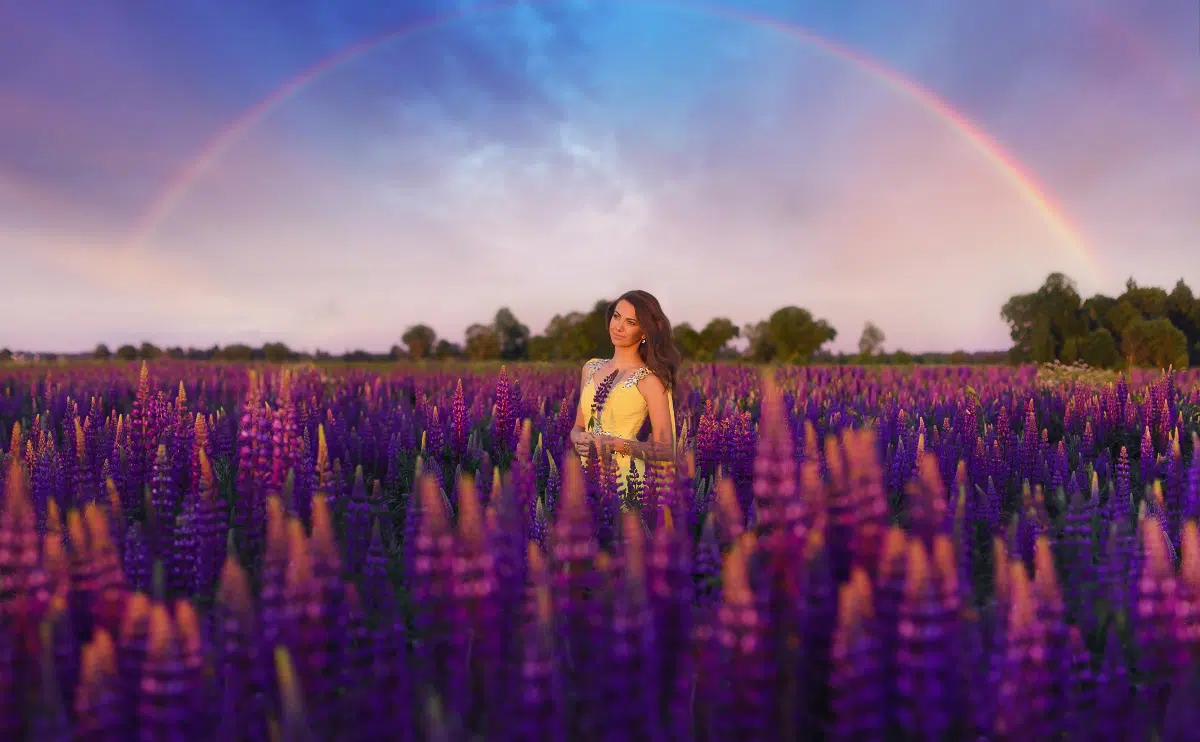
Exulting Poems About Rainbows
Embark on a vivid journey through the enchanting world of rainbows with our carefully curated collection of handpicked poems.
Delight in the beauty and symbolism of rainbows as you explore a diverse array of verses, ranging from concise and evocative poems that capture their fleeting essence to heartfelt compositions that weave rainbows with the tapestry of love.
Immerse yourself in the captivating allure of these radiant natural wonders, as you discover the finest poems celebrating rainbows, all gathered conveniently in one extraordinary compilation.
Let’s go!
My #1 Favorite Poem About Rainbows
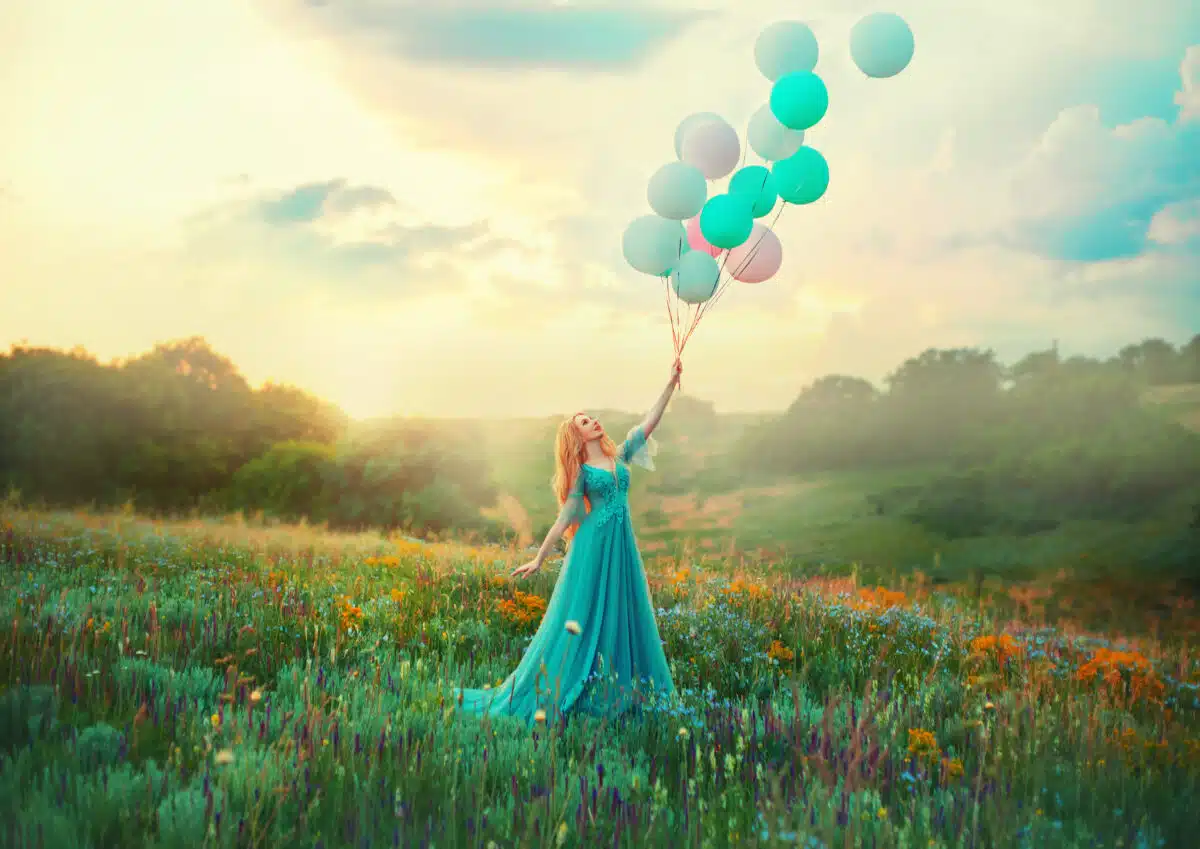
“The Rainbow” by William Wordsworth
My heart leaps up when I behold
A rainbow in the sky:
So was it when my life began;
So is it now I am a man;
So be it when I shall grow old,
Or let me die!
The Child is father of the Man;
I could wish my days to be
Bound each to each by natural piety.
Short Poems About Rainbows
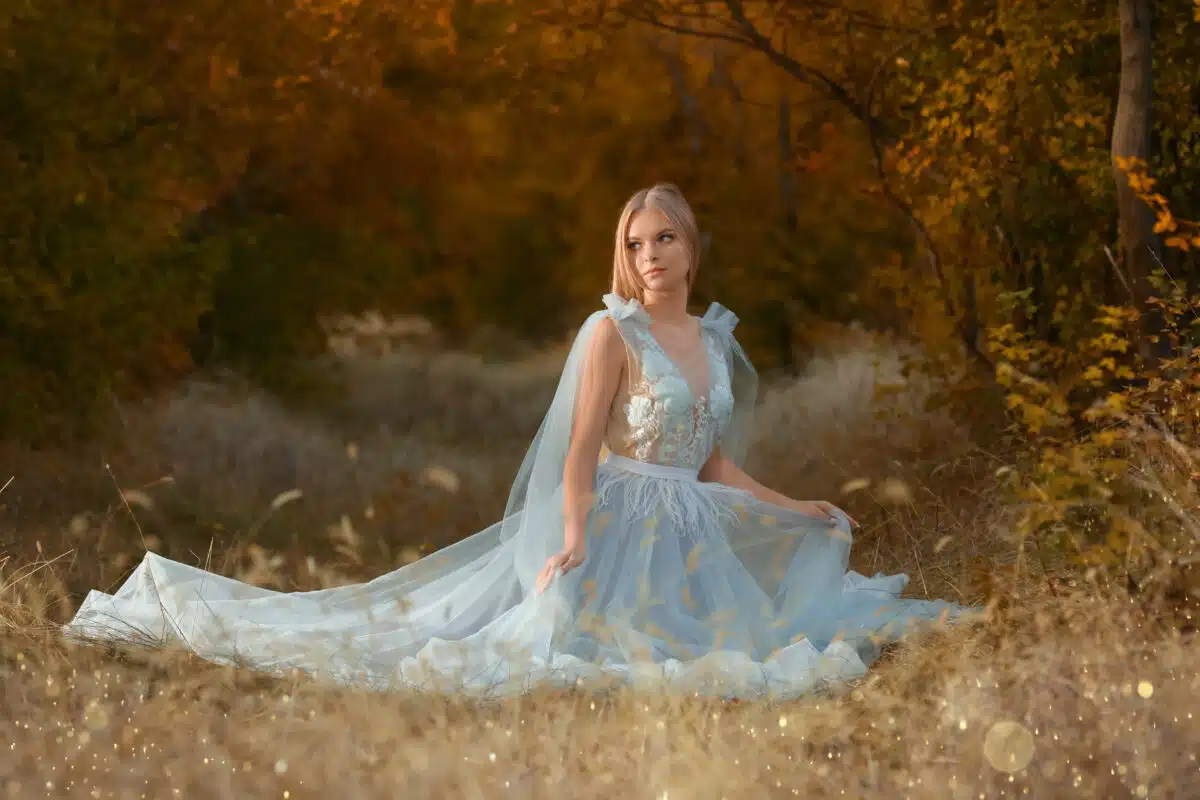
“Upon Julia’s Ribbon” by Robert Herrick
As shews the air when with a rain-bow graced,
So smiles that ribbon ’bout my Julia’s waist;
Or like Nay, ’tis that Zonulet of love,
Wherein all pleasures of the world are wove.
“The Rainbow” by Walter De La Mare
I saw the lovely arch
Of Rainbow span the sky,
The gold sun burning
As the rain swept by.
In bright-ringed solitude
The showery foliage shone
One lovely moment,
And the Bow was gone.
“Dedication: Riley Child-Rhymes” by James Whitcomb Riley
He owns the bird-songs of the hills –
The laughter of the April rills;
And his are all the diamonds set
In Morning’s dewy coronet, –
And his the Dusk’s first minted stars
That twinkle through the pasture-bars
And litter all the skies at night
With glittering scraps of silver light; –
The rainbow’s bar, from rim to rim,
In beaten gold, belongs to him.
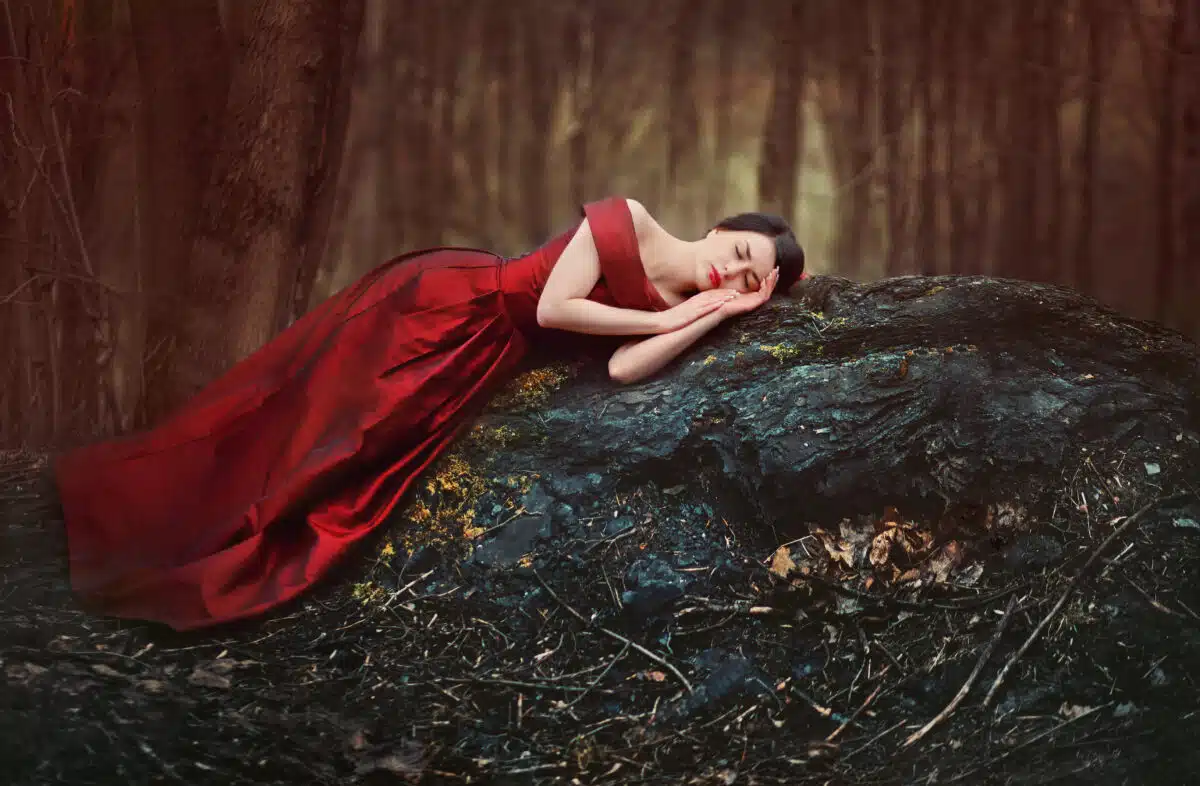
“XVII: Asleep” by Emily Dickinson
As far from pity as complaint,
As cool to speech as stone,
As numb to revelation
As if my trade were bone.
As far from time as history,
As near yourself to-day
As children to the rainbow’s scarf,
Or sunset’s yellow play
To eyelids in the sepulchre.
How still the dancer lies,
While color’s revelations break,
And blaze the butterflies!
“The Rainbow” by Robert Herrick
Look how the rainbow doth appear
But in one only hemisphere;
So likewise after our decease
No more is seen the arch of peace.
That cov’nant’s here, the under-bow,
That nothing shoots but war and woe.
“The Rainbow, Or Curious Covenant” by Robert Herrick
Mine eyes, like clouds, were drizzling rain;
And as they thus did entertain
The gentle beams from Julia’s sight
To mine eyes levell’d opposite,
O thing admir’d! there did appear
A curious rainbow smiling there;
Which was the covenant that she
No more would drown mine eyes or me.
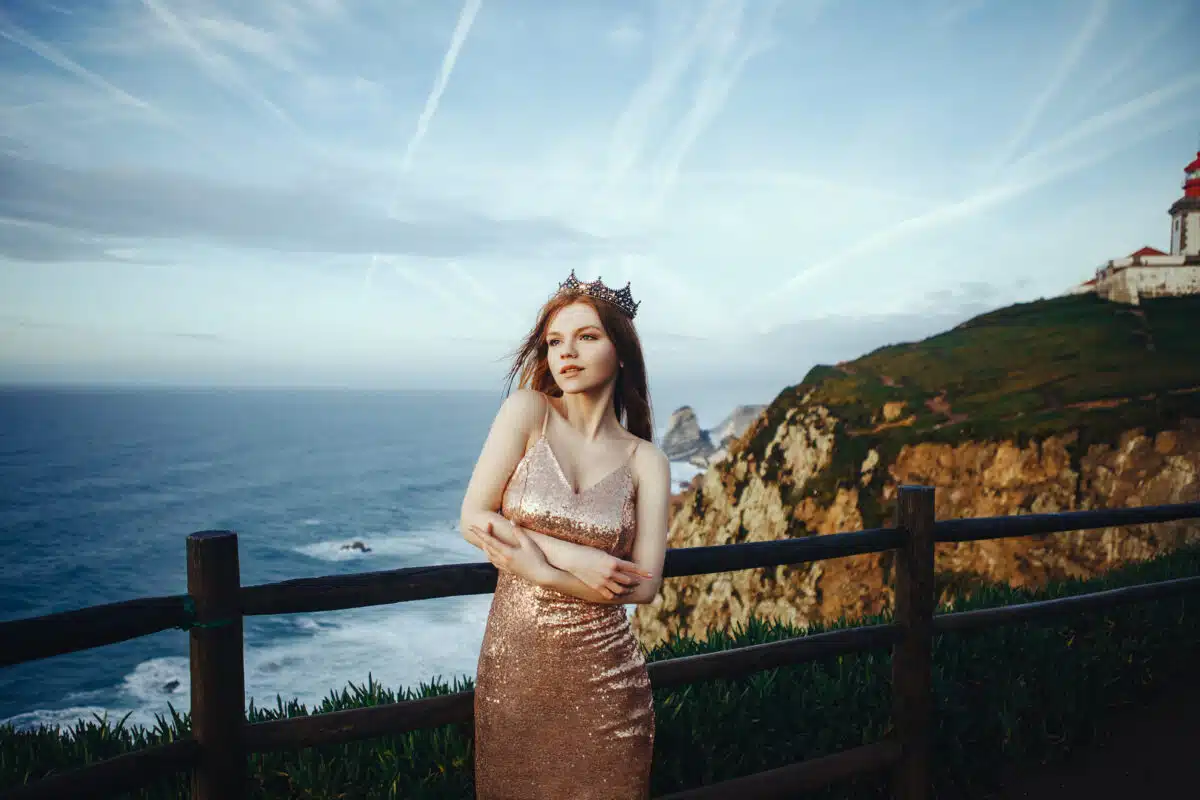
“The Sea of Glass” by Ezra Pound
I looked and saw a sea
roofed over with rainbows,
In the midst of each
two lovers met and departed;
Then the sky was full of faces
with gold glories behind them.
“Deaf And Dumb – A Group By Woolner” by Robert Browning
Only the prism’s obstruction shows aright
The secret of a sunbeam, breaks its light
Into the jewelled bow from blankest white;
So may a glory from defect arise:
Only by Deafness may the vexed Love wreak
Its insuppressive sense on brow and cheek,
Only by Dumbness adequately speak
As favoured mouth could never, through the eyes.
“XXXVII” by Emily Dickinson
The dying need but little, dear, —
A glass of water’s all,
A flower’s unobtrusive face
To punctuate the wall,
A fan, perhaps, a friend’s regret,
And certainly that one
No color in the rainbow
Perceives when you are gone.
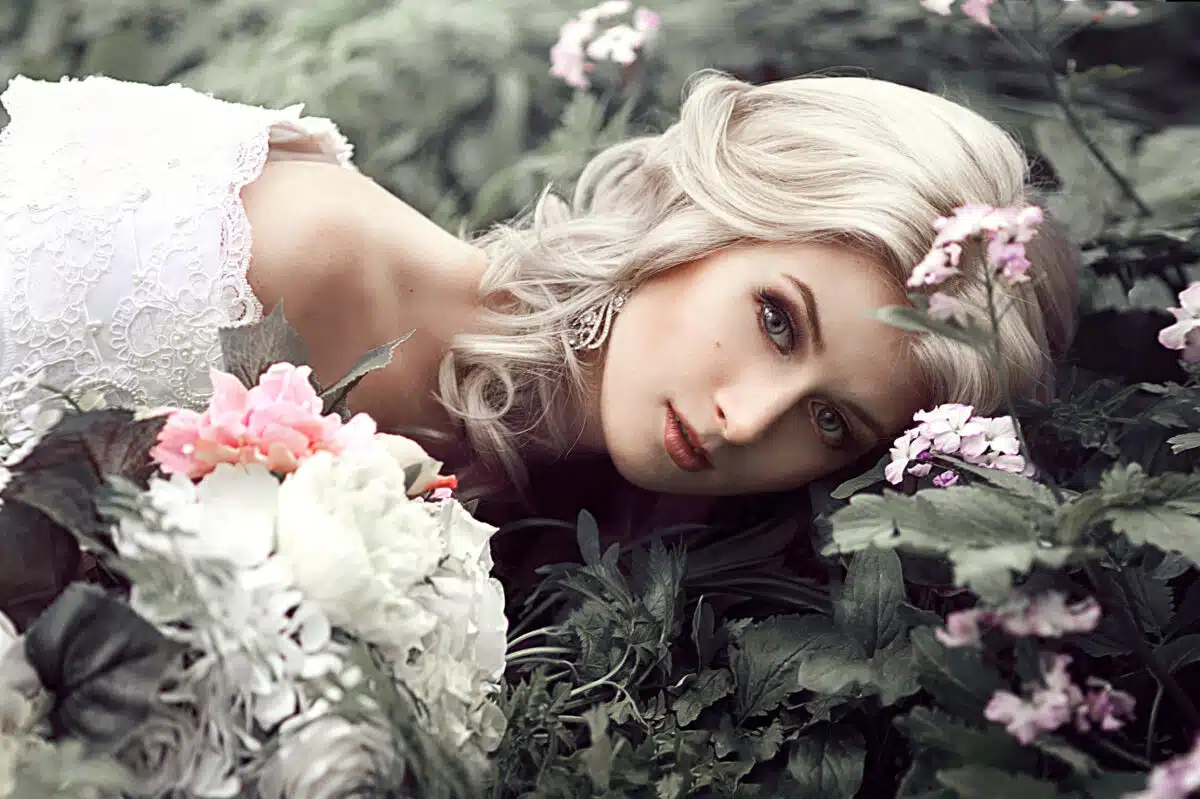
“Emily Brontë” by Louise Imogen Guiney
What sacramental hurt that brings
The terror of the truth of things
Had changed thee? Secret be it yet.
’T was thine, upon a headland set,
To view no isles of man’s delight,
With lyric foam in rainbow flight,
But all a-swing, a-gleam, mid slow uproar,
Black sea, and curved uncouth sea-bitten shore.
“The Rainbow” by Thomas Campbell
Triumphal arch, that fills the sky
When storms prepare to part,
I ask not proud Philosophy
To teach me what thou art.
Still seem, as to my childhood’s sight,
A midway station given,
For happy spirits to alight,
Betwixt the earth and heaven.
“The Luzumiyat of Abu’l-Ala, XXX” by Al-Ma‘arri (Ameen Rihani, Translator)
Or wilt thou commerce have with those who make
Rugs of the rainbow, rainbows of the snake,
Snakes of a staff, and other wondrous things?—
The burning thirst a mirage can not slake.
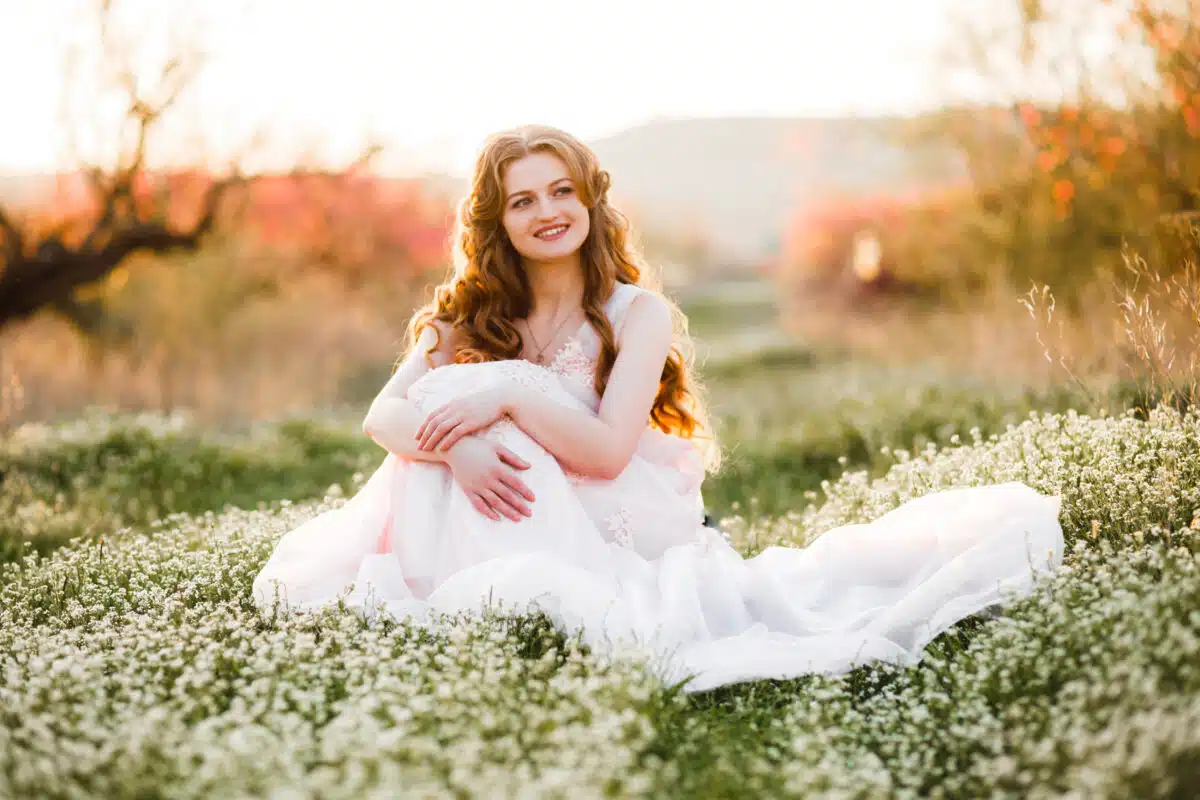
“The Rainbow” by Felicia Hemans
Bright pledge of peace and sunshine! the surety
Of thy Lord’s hand, the object of His eye!
When I behold thee, though my light be dim,
Distant and low, I can in thine see Him
Who looks upon thee from His glorious throne,
And minds the Covenant ’twixt All and One.
“Fragment” by Amy Lowell
What is poetry? Is it a mosaic
Of coloured stones which curiously are wrought
Into a pattern? Rather glass that’s taught
By patient labor any hue to take
And glowing with a sumptuous splendor, make
Beauty a thing of awe; where sunbeams caught,
Transmuted fall in sheafs of rainbows fraught
With storied meaning for religion’s sake.
“The Beautiful” by J.R Barrick
I asked the artist, dreaming a dream,
For the ideal of his soul,
As he sought to mirror the spirit’s light
That over his senses stole;
In the heavy sigh of his sad reply,
I read how the task was vain,
To trace on the vacant canvas there
The image of heart and brain.
I asked the poet one summer eve,
Alone in the spell of his thought,
For the form that over his fancy stole,
The shadow his spirit sought;
With a mournful voice he rose to tell
How wildly and madly he strove
To link his rhyme to the silver chime
Of the ringing stars above.
I asked his theme, in a musing mood,
Of the proud philosopher,
His soul to the shrine of Nature wed,
A votive worshiper.
He deigned to tell how the Beautiful
Had lured him from his birth,
Leading his eye afar through the sky
And over the wastes of earth.
I asked the good man, rising devout,
One eve, from his silent prayer,
If ever a sense of the Beautiful
Was his in devotion to share;
“”T is the Spirit of God,” was his answer meek,
“Abroad in the earth and sky:
By day and by night its blazing light
As a beacon to the eye.”
I saw it then in the glow of a star,
In the hue of the beautiful flower,
Its spell abroad in the glaring day,
In the hush of the midnight hour;
Its image bright as a rainbow set In the murky cloud of sight,
At morn and eve sent down from heaven
Its fountain of glory and light.
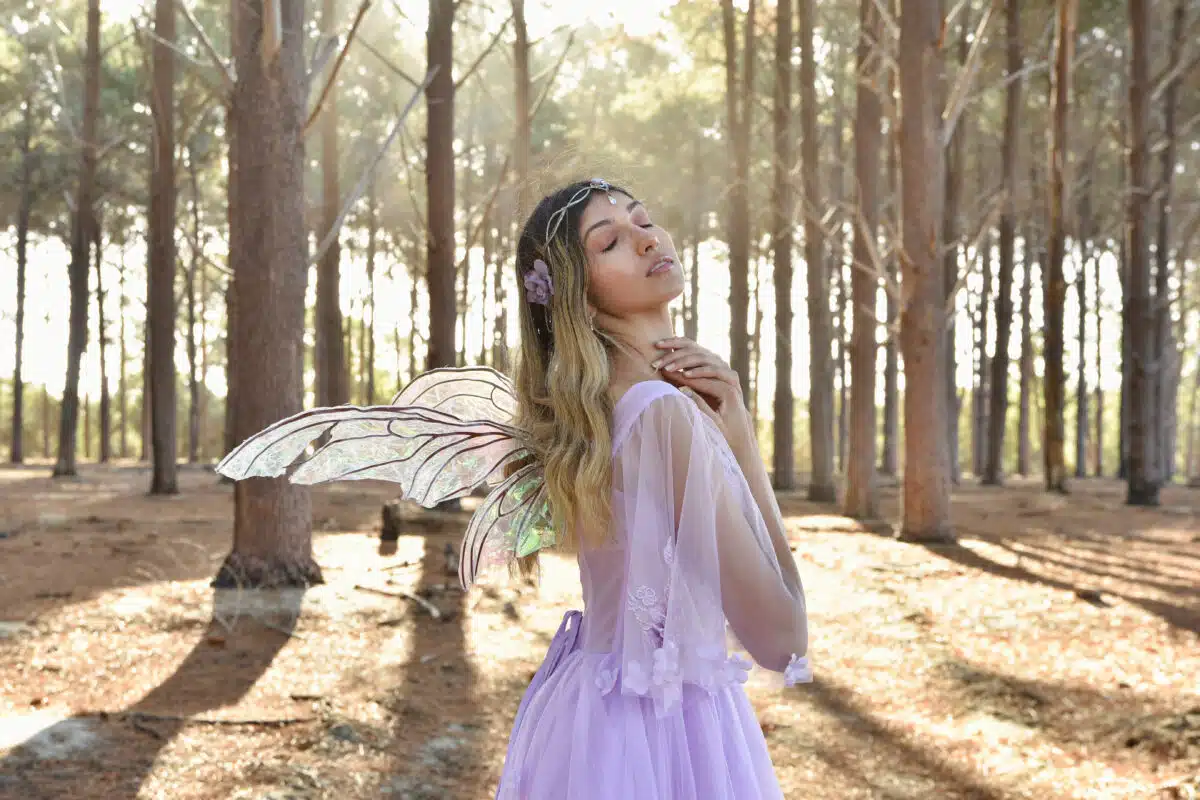
“The Rainbow” by Henry Reed Conant
Howe’er dark the clouds may hover
O’er thy pathway, ne’er repine;
Mark thou, when the storm is over,
In the heaven that beautious line!
Poems About Rainbows and Hope
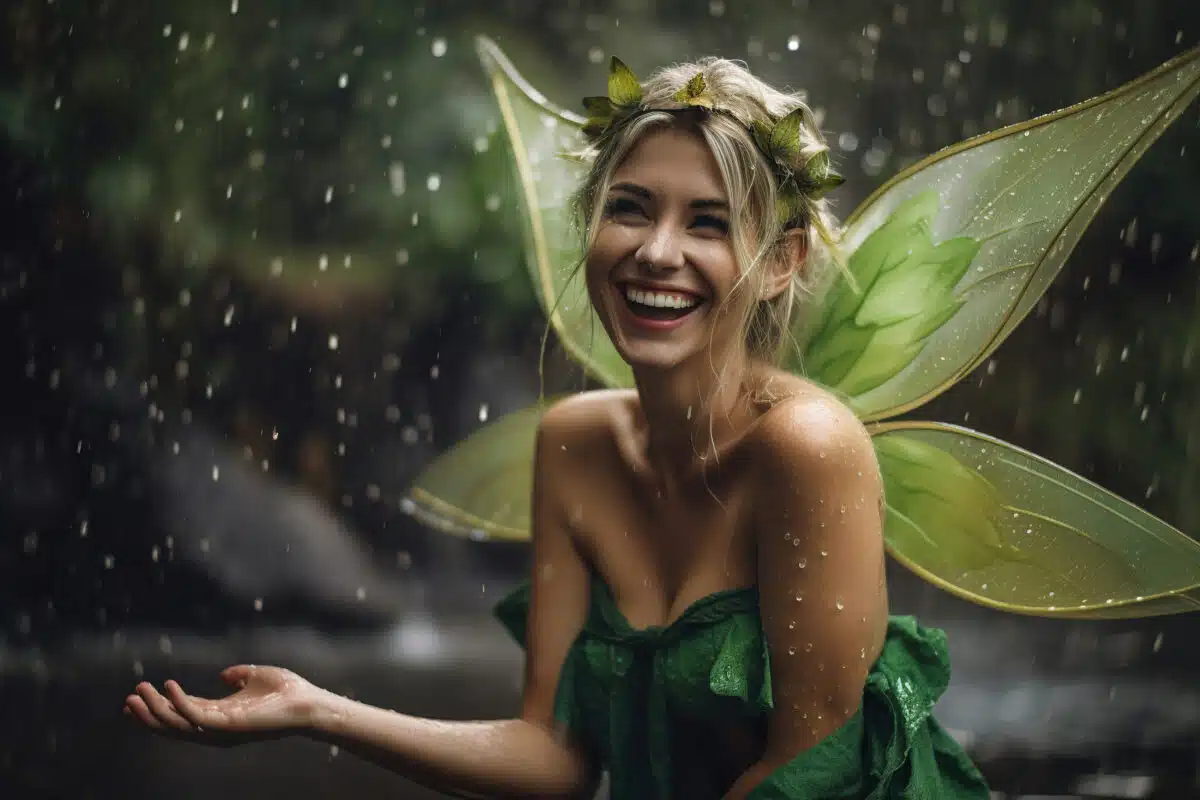
“Rain And Rainbow” by Johann Wolfgang von Goethe
During a heavy storm it chanced
That from his room a cockney glanced
At the fierce tempest as it broke,
While to his neighbour thus he spoke:
“The thunder has our awe inspired,
Our barns by lightning have been fired,–
Our sins to punish, I suppose;
But in return, to soothe our woes,
See how the rain in torrents fell,
Making the harvest promise well!
But it’s a rainbow that I spy
Extending o’er the dark-grey sky?
With it I’m sure we may dispense,
The colour’d cheat! The vain pretence!”
Dame Iris straightway thus replied:
“Dost dare my beauty to deride?
In realms of space God station’d me
A type of better worlds to be
To eyes that from life’s sorrows rove
In cheerful hope to Heav’n above,
And, through the mists that hover here
God and his precepts blest revere.
Do thou, then, grovel like the swine,
And to the ground thy snout confine,
But suffer the enlighten’d eye
To feast upon my majesty.”
“The Prism” by George MacDonald
I.
A pool of broken sunbeams lay
Upon the passage-floor,
Radiant and rich, profound and gay
As ever diamond bore.
Small, flitting hands a handkerchief
Spread like a cunning trap:
Prone lay the gorgeous jewel-sheaf
In the glory-gleaner’s lap!
Deftly she folded up the prize,
With lovely avarice;
Like one whom having had made wise,
She bore it off in bliss.
But ah, when for her prisoned gems
She peeped, to prove them there,
No glories broken from their stems
Lay in the kerchief bare!
For still, outside the nursery door,
The bright persistency,
A molten diadem on the floor,
Lay burning wondrously.
II.
How oft have I laid fold from fold
And peered into my mind—
To see of all the purple and gold
Not one gleam left behind!
The best of gifts will not be stored:
The manna of yesterday
Has filled no sacred miser-hoard
To keep new need away.
Thy grace, O Lord, it is thyself;
Thy presence is thy light;
I cannot lay it on my shelf,
Or take it from thy sight.
For daily bread we daily pray—
The want still breeds the cry;
And so we meet, day after day,
Thou, Father in heaven, and I.
Is my house dreary, wall and floor,
Will not the darkness flit,
I go outside my shadowy door
And in thy rainbow sit.
“An Old Year’s Address” by James Whitcomb Riley
‘I have twankled the strings of the twinkering rain;
I have burnished the meteor’s mail;
I have bridled the wind
When he whinnied and whined
With a bunch of stars tied to his tail;
But my sky-rocket hopes, hanging over the past,
Must fuzzle and fazzle and fizzle at last!’
I had waded far out in a drizzling dream,
And my fancies had spattered my eyes
With a vision of dread,
With a number ten head,
And a form of diminutive size–
That wavered and wagged in a singular way
As he wound himself up and proceeded to say,–
‘I have trimmed all my corns with the blade of the moon;
I have picked every tooth with a star:
And I thrill to recall
That I went through it all
Like a tune through a tickled guitar.
I have ripped up the rainbow and raveled the ends
When the sun and myself were particular friends.’
And pausing again, and producing a sponge
And wiping the tears from his eyes,
He sank in a chair
With a technical air
That he struggled in vain to disguise,–
For a sigh that he breathed, as I over him leant,
Was haunted and hot with a peppermint scent.
‘Alas!’ he continued in quavering tones
As a pang rippled over his face,
‘The life was too fast
For the pleasure to last
In my very unfortunate case;
And I’m going’–he said as he turned to adjust
A fuse in his bosom,–‘I’m going to–BUST!’
I shrieked and awoke with the sullen che-boom
Of a five-pounder filling my ears;
And a roseate bloom
Of a light in the room
I saw through the mist of my tears,–
But my guest of the night never saw the display,
He had fuzzled and fazzled and fizzled away!
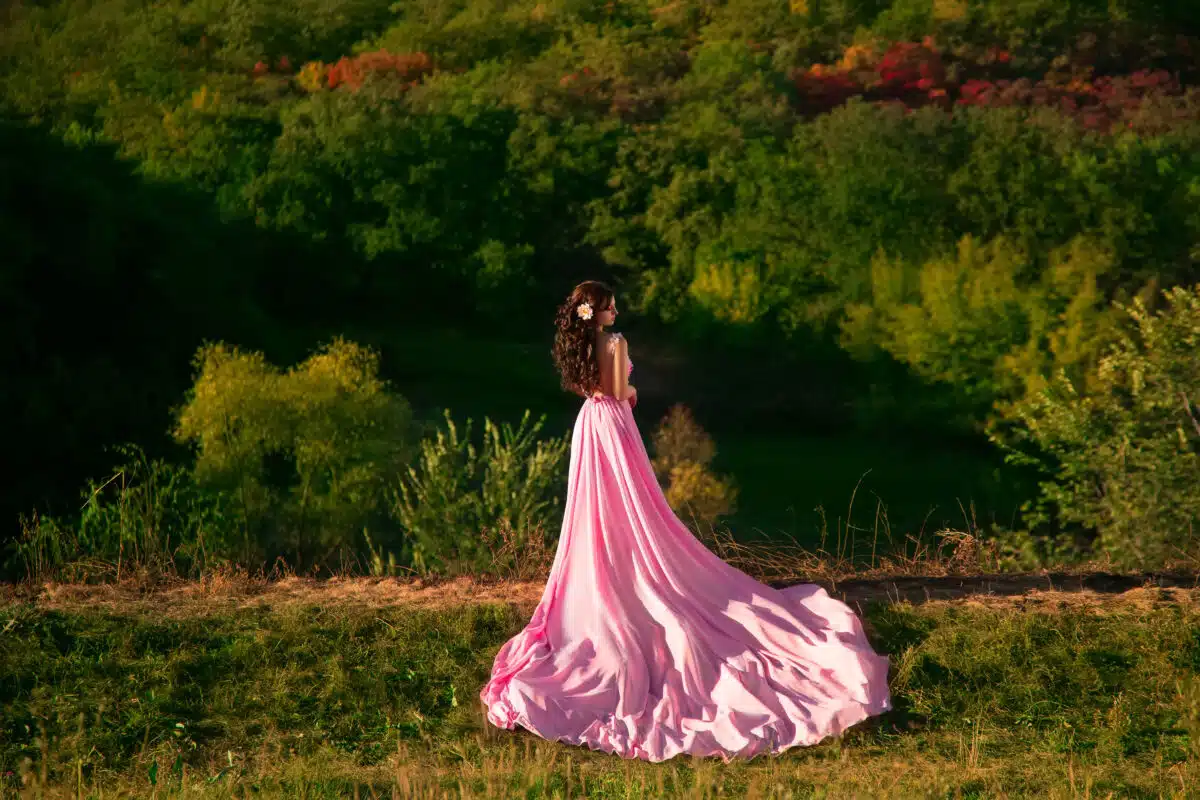
“Sunrise On The Hills” by Henry Wadsworth Longfellow
I stood upon the hills, when heaven’s wide arch
Was glorious with the sun’s returning march,
And woods were brightened, and soft gales
Went forth to kiss the sun-clad vales.
The clouds were far beneath me; bathed in light,
They gathered midway round the wooded height,
And, in their fading glory, shone
Like hosts in battle overthrown.
As many a pinnacle, with shifting glance.
Through the gray mist thrust up its shattered lance,
And rocking on the cliff was left
The dark pine blasted, bare, and cleft.
The veil of cloud was lifted, and below
Glowed the rich valley, and the river’s flow
Was darkened by the forest’s shade,
Or glistened in the white cascade;
Where upward, in the mellow blush of day,
The noisy bittern wheeled his spiral way.
I heard the distant waters dash,
I saw the current whirl and flash,
And richly, by the blue lake’s silver beach,
The woods were bending with a silent reach.
Then o’er the vale, with gentle swell,
The music of the village bell
Came sweetly to the echo-giving hills;
And the wild horn, whose voice the woodland fills,
Was ringing to the merry shout,
That faint and far the glen sent out,
Where, answering to the sudden shot, thin smoke,
Through thick-leaved branches, from the dingle broke.
If thou art worn and hard beset
With sorrows, that thou wouldst forget,
If thou wouldst read a lesson, that will keep
Thy heart from fainting and thy soul from sleep,
Go to the woods and hills! No tears
Dim the sweet look that Nature wears.
“The Kingfisher” by William Henry Davies
It was the Rainbow gave thee birth,
And left thee all her lovely hues;
And, as her mother’s name was Tears,
So runs it in my blood to choose
For haunts the lonely pools, and keep
In company with trees that weep.
Go you and, with such glorious hues,
Live with proud peacocks in green parks;
On lawns as smooth as shining glass,
Let every feather show its marks;
Get thee on boughs and clap thy wings
Before the windows of proud kings.
Nay, lovely Bird, thou art not vain;
Thou hast no proud, ambitious mind;
I also love a quiet place
That’s green, away from all mankind;
A lonely pool, and let a tree
Sigh with her bosom over me.
“XXXV: The Goal” by Emily Dickinson
Each life converges to some centre
Expressed or still;
Exists in every human nature
A goal,
Admitted scarcely to itself, it may be,
Too fair
For credibility’s temerity
To dare.
Adored with caution, as a brittle heaven,
To reach
Were hopeless as the rainbow’s raiment
To touch,
Yet persevered toward, surer for the distance;
How high
Unto the saints’ slow diligence
The sky!
Ungained, it may be, by a life’s low venture,
But then,
Eternity enables the endeavoring
Again.
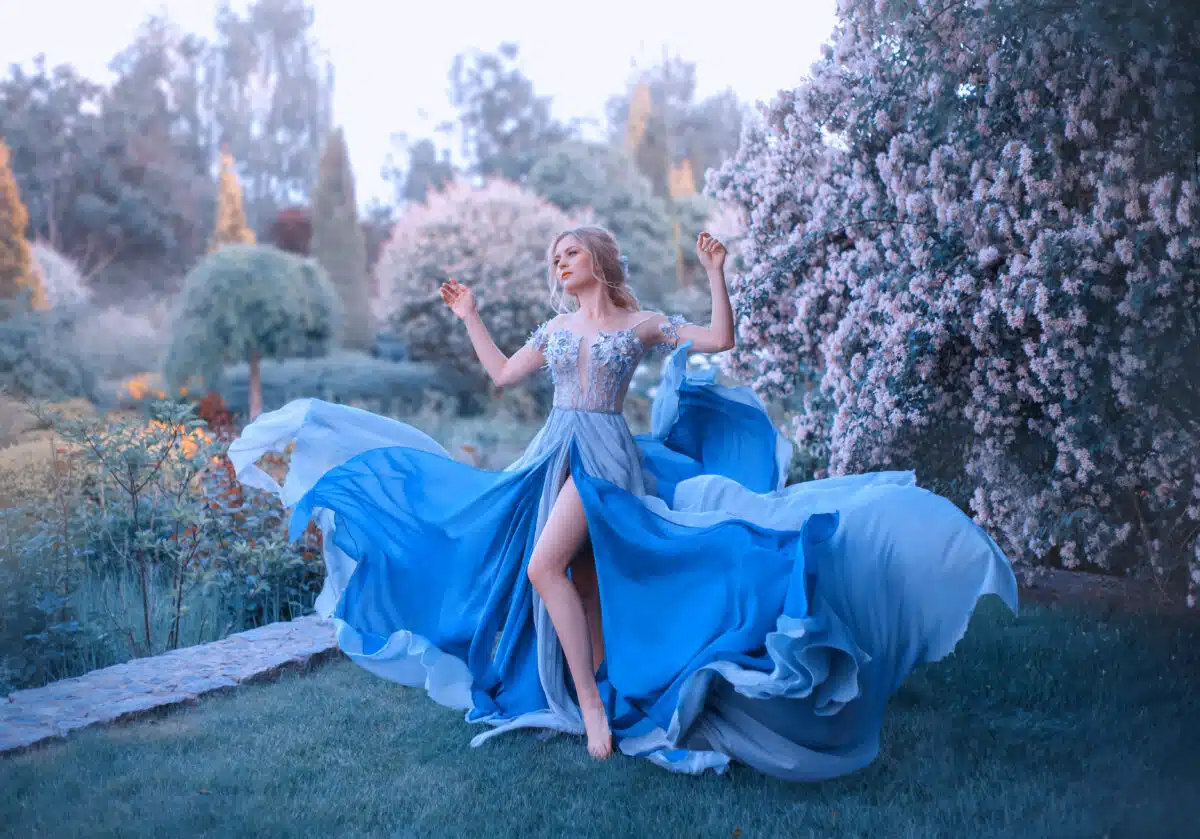
“The Rainbow Of Promise” by Ella Wheeler Wilcox
In the face of the sun are great thunderbolts hurled,
And the storm-clouds have shut out its light;
But a Rainbow of Promise now shines on the world,
And the universe thrills at the sight.
Tis the flag of our Union, the red, white, and blue,
Our Star-spangled Banner-our pride;
Fair symbol of all that is noble and true,
Flung out over continents wide.
Flung out in its glory o’er land and o’er sea,
With a message from God in each star;
And a glorious promise of peace yet to be
In the fluttering folds of each bar.
A Rainbow of Promise, bright emblem of hope,
Fair flag of each cause that is just;
No longer in doubt or in darkness we grope-
In the Star-spangled Banner we trust.
“Hiawatha’s Childhood” by Henry Wadsworth Longfellow
By the shores of Gitche Gumee,
By the shining Big-Sea-Water,
Stood the wigwam of Nokomis,
Daughter of the Moon, Nokomis.
Dark behind it rose the forest,
Rose the black and gloomy pine-trees,
Rose the firs with cones upon them;
Bright before it beat the water,
Beat the clear and sunny water,
Beat the shining Big-Sea-Water.
There the wrinkled old Nokomis
Nursed the little Hiawatha,
Rocked him in his linden cradle,
Bedded soft in moss and rushes,
Safely bound with reindeer sinews;
Stilled his fretful wail by saying,
“Hush! the Naked Bear will hear thee!”
Lulled him into slumber, singing,
“Ewa-yea! my little owlet!
Who is this that lights the wigwam?
With his great eyes lights the wigwam?
Ewa-yea! my little owlet!”
Many things Nokomis taught him
Of the stars that shine in heaven;
Showed him Ishkoodah, the comet,
Ishkoodah, with fiery tresses;
Showed the Death-Dance of the spirits,
Warriors with their plumes and war-clubs,
Flaring far away to northward
In the frosty nights of winter;
Showed the broad, white road in heaven,
Pathway of the ghosts, the shadows,
Running straight across the heavens,
Crowded with the ghosts, the shadows.
At the door, on summer evenings,
Sat the little Hiawatha;
Heard the whispering of the pine-trees,
Heard the lapping of the water,
Sounds of music, words of wonder;
“Minnie-wawa!” said the pine-trees,
“Mudway-aushka!” said the water;
Saw the fire-fly, Wah-wah-taysee,
Flitting through the dusk of evening,
With the twinkle of its candle
Lighting up the brakes and bushes,
And he sang the song of children.
Sang the song Nokomis taught him:
“Wah-wah-taysee, little fire-fly,
Little, flitting, white-fire insect,
Little, dancing, white-fire creature,
Light me with your little candle,
Ere upon my bed I lay me,
Ere in sleep I close my eyelids!”
Saw the moon rise from the water
Rippling, rounding from the water,
Saw the flecks and shadows on it,
Whispered, “What is that, Nokomis?”
And the good Nokomis answered:
“Once a warrior, very angry,
Seized his grandmother, and threw her
Up into the sky at midnight;
Right against the moon he threw her;
‘Tis her body that you see there.”
Saw the rainbow in the heaven,
In the eastern sky, the rainbow,
Whispered, “What is that, Nokomis?”
And the good Nokomis answered:
“Tis the heaven of flowers you see there;
All the wild-flowers of the forest,
All the lilies of the prairie,
When on earth they fade and perish,
Blossom in that heaven above us.”
When he heard the owls at midnight,
Hooting, laughing in the forest,
“What is that?” he cried, in terror;
“What is that,” he said, “Nokomis?”
And the good Nokomis answered:
“That is but the owl and owlet,
Talking in their native language,
Talking, scolding at each other.”
Then the little Hiawatha
Learned of every bird its language,
Learned their names and all their secrets,
How they built their nests in summer,
Where they hid themselves in winter,
Talked with them whene’er he met them,
Called them “Hiawatha’s Chickens.”
Of all beasts he learned the language,
Learned their names and all their secrets,
How the beavers built their lodges,
Where the squirrels hid their acorns,
How the reindeer ran so swiftly,
Why the rabbit was so timid,
Talked with them whene’er he met them,
Called them “Hiawatha’s Brothers.
“The Skylark” by Thomas Hogg
Bird of the wilderness,
Blithesome and cumberless,
Sweet be thy matin o’er moorland and lea!
Emblem of happiness,
Blest is thy dwelling-place—
Oh, to abide in the desert with thee!
Wild is thy lay and loud,
Far in the downy cloud,
Love gives it energy, love gave it birth.
Where, on thy dewy wing,
Where art thou journeying?
Thy lay is in heaven, thy love is on earth.
O’er fell and fountain sheen,
O’er moor and mountain green,
O’er the red streamer that heralds the day,
Over the cloudlet dim,
Over the rainbow’s rim,
Musical cherub, soar, singing, away!
Then, when the gloaming comes,
Low in the heather blooms
Sweet will thy welcome and bed of love be!
Emblem of happiness,
Blest is thy dwelling-place—
Oh, to abide in the desert with thee!
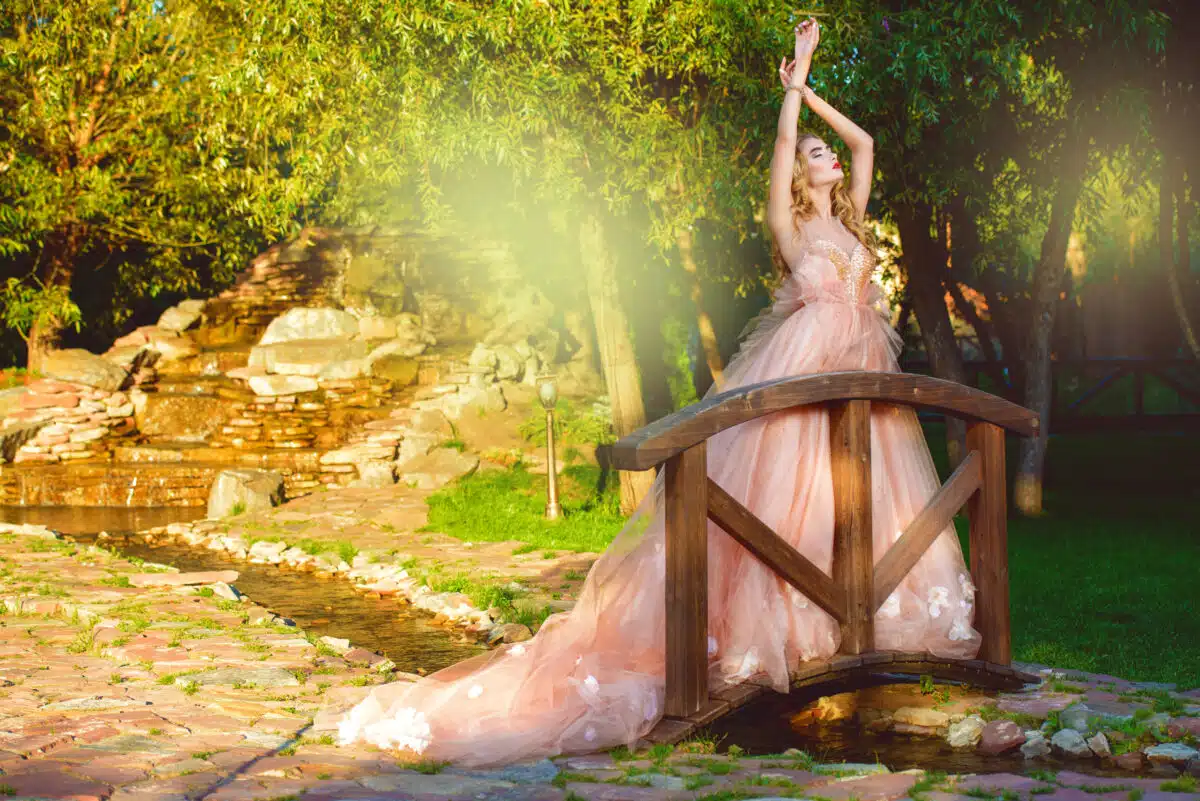
“The Rainbow Bridge” by Samuel Griswold Goodrich
Love and Hope and Youth, together
Travelling once in stormy weather,
Met a deep and gloomy tide,
Flowing swift and dark and wide.
‘Twas named the river of Despair,
And many a wreck was floating there!
The urchins paused, with faces grave,
Debating how to cross the wave,
When lo! the curtain of the storm
Was severed, and the rainbow’s form
Stood against the parting cloud
Emblem of peace on trouble’s shroud!
Hope pointed to the signal flying,
And the three, their shoulders plying,
O’er the stream the light arch threw
A rainbow bridge of loveliest hue!
Now, laughing as they tripped it o’er,
They gayly sought the other shore:
But soon the hills began to frown,
And the bright sun went darkly down.
Though their step was light and fleet,
The rainbow vanished ‘neath their feet,
And down they went, the giddy things!
But Hope put forth his ready wings,
And clinging Love and Youth he bore
In triumph to the other shore.
But ne’er I ween should mortals deem
On rainbow bridge to cross a stream,
Unless bright, buoyant Hope is nigh,
And, light with Love and Youth, they fly!
“Four Steichen Prints” by Carl Sandburg
The earth, the rock and the oil of the earth, the
slippery frozen places of the earth, these are for homes
of rainbow bubbles, curves of the circles of a bubble,
curves of the arcs of the rainbow prisms—between sun
and rock they lift to the sun their foam feather and go.
Throw your neck back, throw it back till the neck
muscles shine at the sun, till the falling hair at the
scalp is a black cry, till limbs and knee bones form
an altar, and a girl’s torso over the fire-rock torso shouts
hi yi, hi yee, hallelujah.
Goat girl caught in the brambles, deerfoot or fox-head,
ankles and hair of feeders of the wind, let all the covering
burn, let all stopping a naked plunger from plunging
naked, let it all burn in this wind fire, let the fire have
it in a fast crunch and a flash.
They threw you into a pot of thorns with a wreath in
your hair and bunches of grapes over your head—your
hard little buttocks in the thorn—then the black eyes,
the white teeth, the nameless muscular flair of you,
rippled and twisted in sliding rising scales of laughter;
the earth never had a gladder friend; pigs, goats, deer,
tawny tough-haired jaguars might understand you.
“Live Blindly and Upon the Hour” by Trumbull Stickney
Live blindly and upon the hour. The Lord,
Who was the Future, died full long ago.
Knowledge which is the Past is folly. Go,
Poor, child, and be not to thyself abhorred.
Around thine earth sun-winged winds do blow
And planets roll; a meteor draws his sword;
The rainbow breaks his seven-coloured chord
And the long strips of river-silver flow:
Awake! Give thyself to the lovely hours.
Drinking their lips, catch thou the dream in flight
About their fragile hairs’ aerial gold.
Thou art divine, thou livest,—as of old
Apollo springing naked to the light,
And all his island shivered into flowers.
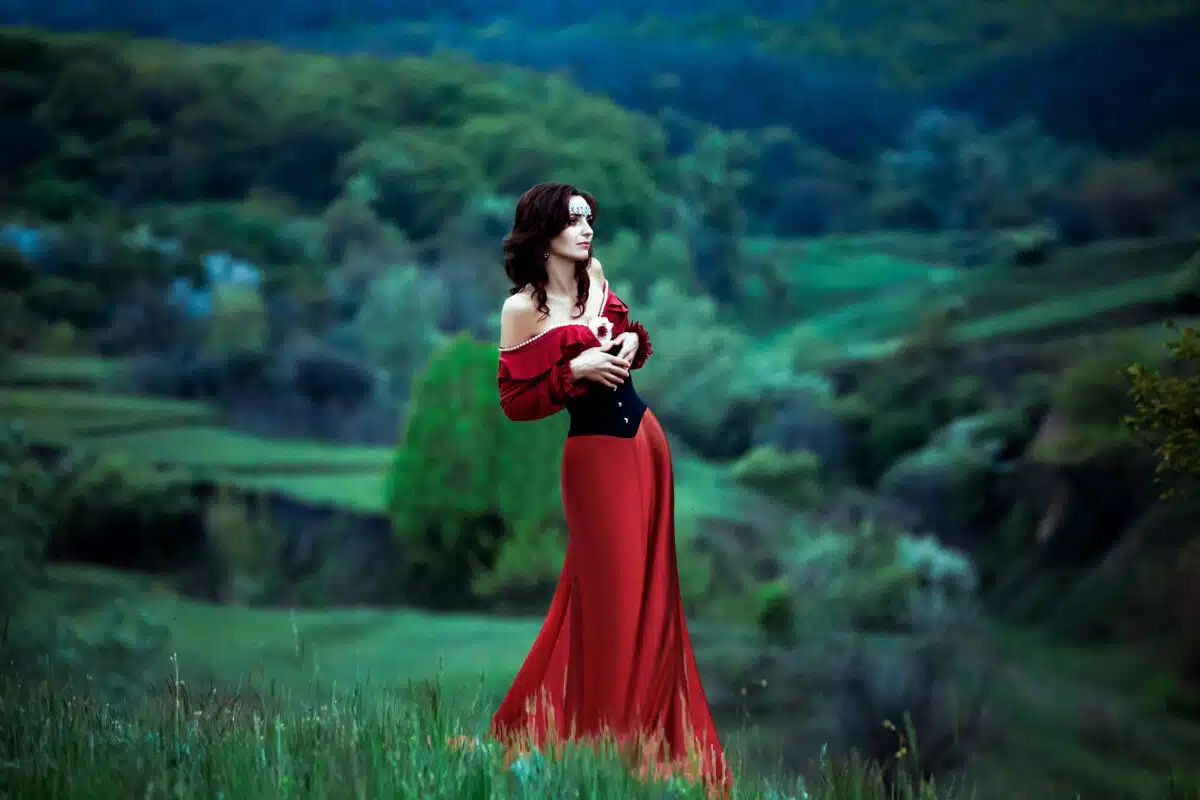
“Sonnet VII. To The Evening Rainbow” by Robert Southey
Mild arch of promise! on the evening sky
Thou shinest fair with many a lovely ray
Each in the other melting. Much mine eye
Delights to linger on thee; for the day,
Changeful and many-weather’d, seem’d to smile
Flashing brief splendor thro’ its clouds awhile,
That deepen’d dark anon and fell in rain:
But pleasant is it now to pause, and view
Thy various tints of frail and watery hue,
And think the storm shall not return again.
Such is the smile that Piety bestows
On the good man’s pale cheek, when he in peace
Departing gently from a world of woes,
Anticipates the realm where sorrows cease.
“Iris of Life” by Zitkála-Šá
Like tiny drops of crystal rain,
In every life the moments fall,
To wear away with silent beat,
The shell of selfishness o’er all.
And every act, not one too small,
That leaps from out the heart’s pure glow,
Like ray of gold sends forth a light,
While moments into seasons flow.
Athwart the dome, Eternity,
To Iris grown resplendent, fly
Bright gleams from every noble deed,
Till colors with each other vie.
’Tis glimpses of this grand rainbow,
Where moments with good deeds unite,
That gladden many weary hearts,
Inspiring them to seek more Light.
“Sonnet” by Mary Thornton McAboy
The thistle-down soared up to meet the sun-
The way-side nursling of the summer shower-
A matchless purple tint its only dower,
That blanched to whiteness ere the day was done.
Though carelessly her web the spider spun
To hide the splendors of the day-god’s power,
Yet vainly still the veiled and fettered flower,
The thistle-down, soared up to meet the sun.
The wind’s wild playmate through the summer days
Soared to the sun it worshiped from afar;
The whiteness caught the glint of golden rays
In triumph passed beyond a rainbow bar;
The wondering world looked on with words of praise
And lips inspired named the flower A STAR.
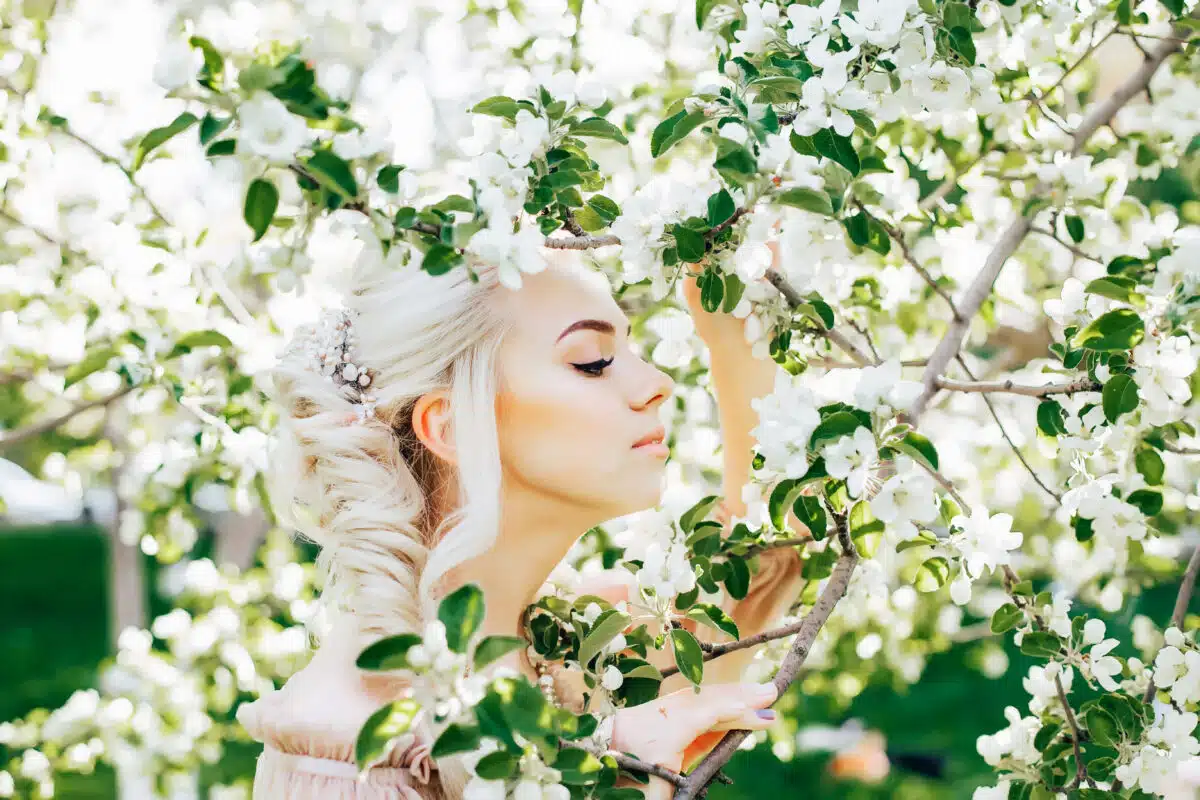
“To the Spring” by Frances Anne Butler
Hail to thee, spirit of hope! whom men call Spring;
Youngest and fairest of the four, who guide
Our mortal year along Time’s rapid tide.
Spirit of life! the old decrepid earth
Has heard thy voice, and at a wondrous birth,
Forth springing from her dark, mysterious womb,
A thousand germs of light and beauty come.
Thy breath is on the waters, and they leap
From their bright winter-woven fetters free;
Along the shore their sparkling billows sweep,
And greet thee with a gush of melody.
The air is full of music, wild and sweet,
Made by the joyous waving of the trees,
Wherein a thousand winged minstrels meet,
And by the work-song of the early bees,
In the white blossoms fondly murmuring,
And founts, that in the blessed sunshine sing;
Hail to thee! maiden, with the bright blue eyes!
And showery robe, all steeped in starry dew;
Hail to thee! as thou ridest through the skies,
Upon thy rainbow car of various hue.
“A Psyche of Spring” by George Marion McClellan
Thou gaily painted butterfly, exquisite thing,
A child of light and blending rainbow hues,
In loveliness a psyche of the spring,
Companion for the rose and diamond dews.
‘Tis thine in sportive joy from hour to hour,
To ride the breeze from flower to flower.
But thou wast once a worm, as now am I,
And seeing thee, gay thing, afloat in bliss,
I take new hope in thoughts of by and by,
When I, as thou, have shed my chrysalis.
Then through a gay eternal spring of light,
Shall my immortal soul pursue its flight.
“The Rainbow” by Patrick Bronte
The shower is past, and the sky
O’erhead is both mild and serene,
Save where a few drops from on high,
Like gems, twinkle over the green:
And glowing fair, in the black north,
The rainbow o’erarches the cloud;
The sun in his glory comes forth,
And larks sweetly warble aloud.
That dismally grim northern sky
Says God in His vengeance once frowned,
And opened His flood-gates on high,
Till obstinate sinners were drowned:
The lively bright south, and that bow,
Say all this dread vengeance is o’er;
These colours that smilingly glow
Say we shall be deluged no more.
Ever blessed be those innocent days,
Ever sweet their remembrance to me;
When often, in silent amaze,
Enraptured, I’d gaze upon thee!
Whilst arching adown the black sky
Thy colours glowed on the green hill,
To catch thee as lightning I’d fly,
But aye you eluded my skill.
From hill unto hill your gay scene
You shifted-whilst crying aloud,
I ran, till at length from the green,
You shifted, at once to the cloud!
So, vain worldly phantoms betray
The youths who too eager pursue,
When ruined and far led astray,
Th’ illusion escapes from their view.
Those peaceable days knew no care,
Except what arose from my play,
My favourite lambkin and hare,
And cabin I built o’er the way.
No cares did I say? Ah! I’m wrong:
Even childhood from cares is not free:
Far distant I see a grim throng
Shake horrible lances at me!
One day-I remember it still-
For pranks I had played on the clown
Who lived on the neighbouring hill,
My cabin was trod to the ground.
Who ever felt grief such as I
When crashed by this terrible blow?
Not Priam, the monarch of Troy,
When all his proud towers lay low.
And grief upon grief was my lot:
Soon after, my lambkin was slain;
My hare, having strayed from its cot,
Was chased by the hounds o’er the plain.
What countless calamities teem
From memory’s page on my view!-
How trifling soever you seem,
Yet once I have wept over you.
Then cease, foolish heart, to repine;
No stage is exempted from care:
If you would true happiness find,
Come follow! and I’ll show you where.
But, first, let us take for our guide
The Word which Jehovah has penned;
By this the true path is descried
Which leads to a glorious end.
How narrow this path to our view!
How steep an ascent lies before!
Whilst, foolish fond heart, laid for you
Are dazzling temptations all o’er.
What bye-ways with easy descent
Invite us through pleasures to stray!
Whilst Satan, with hellish intent,
Suggests that we ought to obey.
But trust not the father of lies,
He tempts you with vanity’s dream;
His pleasure, when touched, quickly dies,
Like bubbles that dance on the stream.
Look not on the wine when it glows
All ruddy, in vessels of gold;
At last it will sting your repose,
And death at the bottom unfold.
But lo! an unnatural night
Pours suddenly down on the eye;
The sun has withdrawn all his light,
And rolls a black globe o’er the sky!
And hark! what a cry rent the air!
Immortal the terrible sound!-
The rocks split with honible tear,
And fearfully shakes all the ground!
The dead from their slumbers awake,
And, leaving their mouldy domain,
Make poor guilty mortals to quake
As pallid they glide o’er the plain!
Sure, Nature’s own God is oppressed,
And Nature in agony cries;-
The sun in his mourning is dressed,
To tell the sad news through the skies!
Yet surely some victory’s gained,
Important, and novel, and great,
Since Death has his captives unchained,
And widely thrown open his gate!
Yes, victory great as a God
Could gain over hell, death, and sin,
This moment’s achieved by the blood
Of Jesus, our crucified King.
But all the dread conflict is o’er;
Lo! cloud after cloud rolls away;
And heaven, serene as before,
Breaks forth in the splendour of day!
And all the sweet landscape around,
Emerged from the ocean of night,
With groves, woods, and villages crowned,
Astonish and fill with delight!
But see! where that crowd melts away,
Three crosses sad spectacles show!
Our Guide has not led us astray;
Heart! this is the secret you’d know-
Two thieves, and a crucified God
Hangs awfully mangled between!
Whilst fast from His veins spouting blood
Runs, dyeing with purple the green!
Behold! the red flood rolls along,
And forming a bason below,
Is termed in Emanuel’s song
The fount for uncleanness and woe.
Immerged in that precious tide,
The soul quickly loses its stains,
Though deeper than crimson they’re dyed,
And ‘scapes from its sorrows and pains.
This fountain is opened for you:
Go, wash, without money or price;
And instantly formed anew,
You’ll lose all your woes in a trice.
Then cease, foolish heart, to repine,
No stage is exempted from care;
If you would true happiness find,
‘Tis on Calvary-seek for it there.
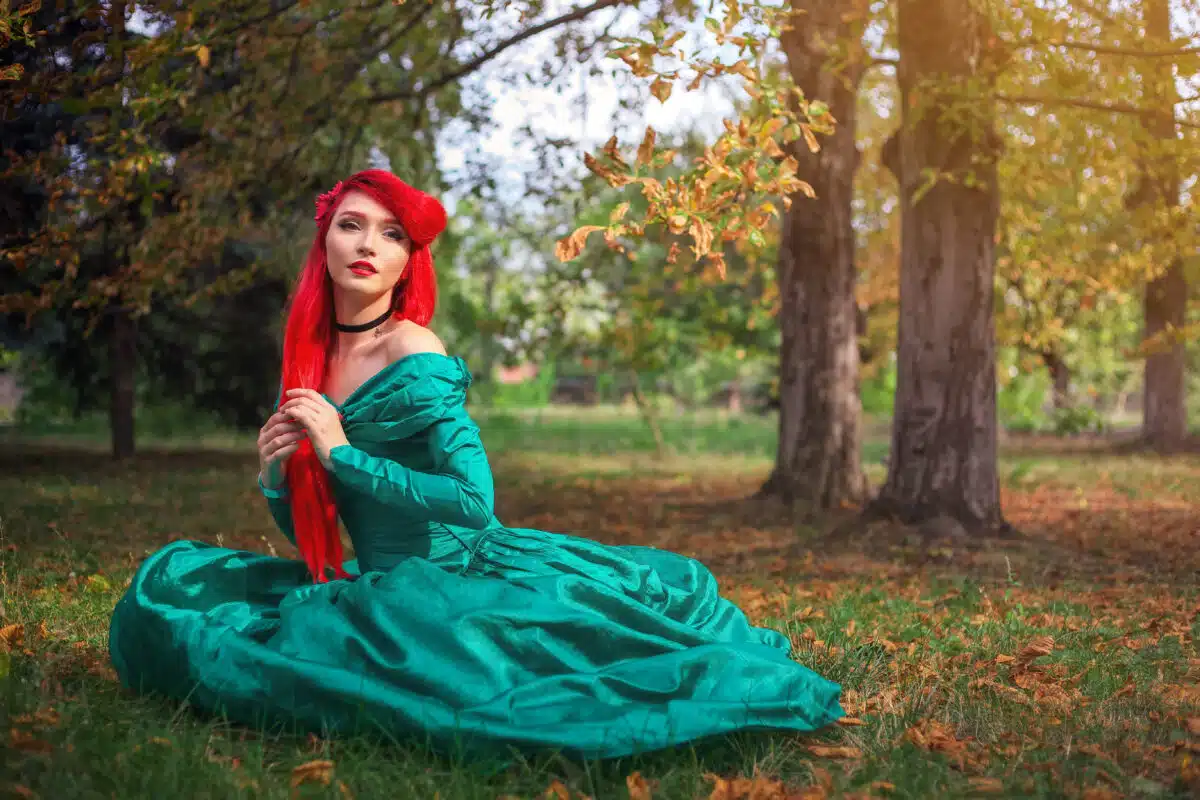
“Trees Need Not Walk the Earth” by David Rosenthal
Trees need not walk the earth
For beauty or for bread;
Beauty will come to them
Where they stand.
Here among the children of the sap
Is no pride of ancestry:
A birch may wear no less the morning
Than an oak.
Here are no heirlooms
Save those of loveliness,
In which each tree
Is kingly in its heritage of grace.
Here is but beauty’s wisdom
In which all trees are wise.
Trees need not walk the earth
For beauty or for bread;
Beauty will come to them
In the rainbow—
The sunlight—
And the lilac-haunted rain;
And bread will come to them
As beauty came:
In the rainbow—
In the sunlight—
In the rain.
“Aurora Borealis” by Nellie Seelye Evans
There is a flower of climate rare,
That never bloomed for me,
I searched the wood, I searched the moor,
I robbed the emerald sea.
Alone upon an icy coast,
By Arctic’s hem it grows,
Its beauty is intoxicant
To those who brave the snows.
But when the Bear shines clear and high
I dream of Polar night.
Wherein this wondrous flower blooms
In sheaves of rainbow light.
“Composed In The Glen Of Loch Etive” by William Wordsworth
“This Land of Rainbows spanning glens whose walls,
Rock-built, are hung with rainbow-coloured mists —
Of far-stretched Meres whose salt flood never rests —
Of tuneful Caves and playful Waterfalls —
Of Mountains varying momently their crests —
Proud be this Land! whose poorest huts are halls
Where Fancy entertains becoming guests;
While native song the heroic Past recalls.”
Thus, in the net of her own wishes caught,
The Muse exclaimed; but Story now must hide
Her trophies, Fancy crouch; the course of pride
Has been diverted, other lessons taught,
That make the Patriot-spirit bow her head
Where the all-conquering Roman feared to tread.
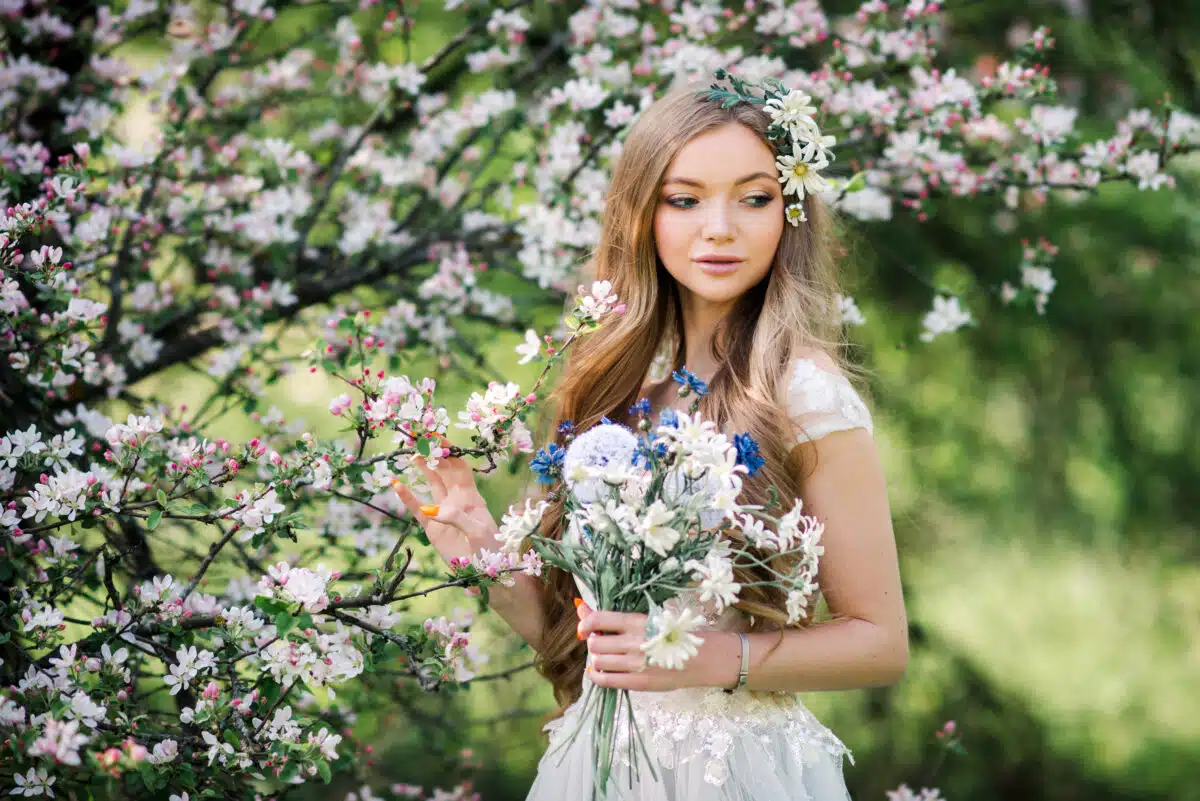
“Flowers” by Mary Baker Eddy
Mirrors of morn
Whence the dewdrop is born,
Soft tints of the rainbow and skies–
Sisters of song,
What a shadowy throng
Around you in memory rise!
Far do ye flee,
From your green bowers free,
Fair floral apostles of love,
Sweetly to shed
Fragrance fresh round the dead,
And breath of the living above.
Flowers for the brave–
Be he monarch or slave,
Whose heart bore its grief and is still!
Flowers for the kind–
Aye, the Christians who wind
Wreaths for the triumphs o’er ill!
“Look for the Rainbow” by May Taylor
It is rainy, yes, God makes it rain,
We cannot always have sun;
But, it will shine again,
The sky is dark I know-
But across it will come the rainbow.
We must not rebel at sorrow,
In pain sweetest things to us come,
Therefore in patience wait till to-morrow,
A song is worth a world of sighs,
Only look for the rainbow in the skies.
“The Rainbow Bridge” by Lizzie Doten
’Twas a faith that was held by the Northmen bold,
In the ages long, long ago,
That the river of death, so dark and cold,
Was spanned by a radiant bow;
A rainbow bridge to the blest abode
Of the strong Gods—free from ill,
Where the beautiful Urda fountain flowed,
Near the ash tree Igdrasill.
They held that when, in life’s weary march,
They should come to that river wide,
They would set their feet on the shining arch,
And would pass to the other side.
And they said that the Gods and the Heroes crossed
That bridge from the world of light,
To strengthen the Soul when its hope seemed lost,
In the conflict for the right.
O, beautiful faith of the grand old past!
So simple, yet so sublime,
A light from that rainbow bridge is cast
Far down o’er the tide of time.
We raise our eyes, and we see above,
The souls in their homeward march;
They wave their hands and they smile in love,
From the height of the rainbow arch.
We know they will drink from the fountain pure
That springs by the Tree of Life,
We know that their spirits will rest secure
From the tempests of human strife;
So we fold our hands, and we close our eyes,
And we strive to forget our pain,
Lest the weak and the selfish wish should rise,
To ask for them back again.
The swelling tide of our grief we stay,
While our warm hearts fondly yearn,
And we ask if over that shining way
They shall nevermore return.
O, we oft forget that our lonely hours
Are known to the souls we love,
And they strew the path of our life with flowers,
From that rainbow arch above.
We hear them call, and their voices sweet
Float down from that bridge of light,
Where the gold and crimson and azure meet,
And mingle their glories bright.
We hear them call, and the soul replies,
From the depths of the life below,
And we strive on the wings of faith to rise
To the height of that radiant bow.
Like the crystal ladder that Jacob saw,
Is that beautiful vision given,
The weary pilgrims of earth to draw
To the life of their native heaven.
For ’tis better that souls should upward tend,
And strive for the victor’s crown,
Than to ask the angels their help to lend,
And come to man’s weakness down.
That rainbow bridge in the crystal dome,
O’er a swiftly flowing tide,
Is the shining way to the spirit home,
That lies on the other side.
To man is the tempest cloud below,
And the storm wind’s fatal breath,
But for those who cross o’er that shining bow,
There is no more pain nor death.
O, fair and bright does that archway stand,
Through the silent lapse of years,
Fashioned and reared by no human hand,
From the sunshine of love and tears.
Sweet spirits, our footsteps are nearing fast
The light of the shining shore;
We shall cross that rainbow bridge at last,
And greet you in joy once more.
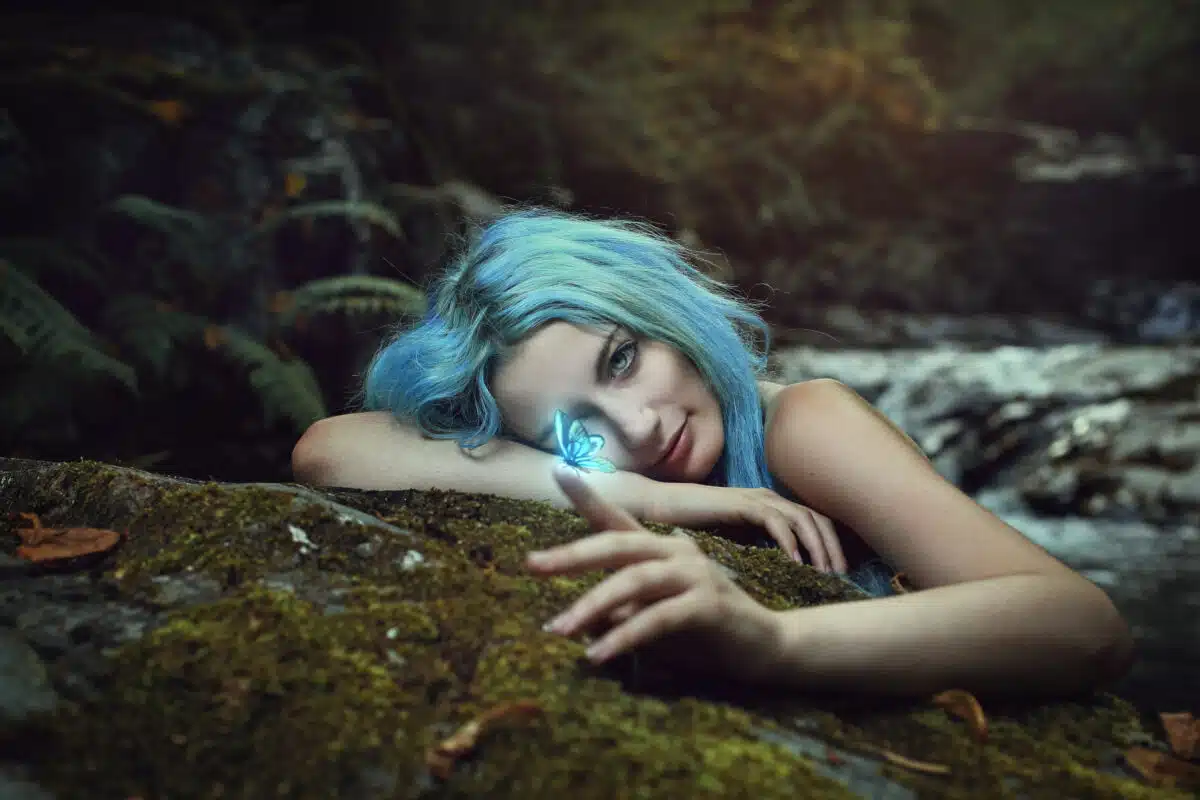
“Hope” by Mary Baker Eddy
Tis borne on the zephyr at eventide’s hour;
It falls on the heart like the dew on the flower,–
An infinite essence from tropic to pole,
The promise, the home, and the heaven of Soul.
Hope happifies life, at the altar or bower,
And loosens the fetters of pride and of power;
It comes through our tears, as the soft summer rain,
To beautify, bless, and make joyful again.
The harp of the minstrel, the treasure of time;
A rainbow of rapture, o’erarching, divine;
The God-given mandate that speaks from above,–
No place for earth’s idols, but hope thou, and love.
“To A Friend” by Ruby Clarke McIntire
As, after darkening winds and gusty showers
Have marred the patient, unreproachful sky,
God’s bow of promise breaks the clouds that lie
Between his sunlight and the waiting flowers,
So, absence ended, with its weight of hours
Lagging and loitering ere they went to die,
My rainbow messenger shines forth on high
To banish every cloud that sullen lowers.
For lone I walked through dim, gray days until
You smiled upon my life, and lo, to live
Was bliss, and joy to tread the earth you trod,
Since in your smile the peace of waters still
Lay mingled with their strength and power to give
Sweet glimpses of the hidden love of God.
Rainbow Poems That Rhyme

“Summer’s Armies” by Emily Elizabeth Dickinson
Some rainbow coming from the fair!
Some vision of the world Cashmere
I confidently see!
Or else a peacock’s purple train,
Feather by feather, on the plain
Fritters itself away!
The dreamy butterflies bestir,
Lethargic pools resume the whir
Of last year’s sundered tune.
From some old fortress on the sun
Baronial bees march, one by one,
In murmuring platoon!
The robins stand as thick to-day
As flakes of snow stood yesterday,
On fence and roof and twig.
The orchis binds her feather on
For her old lover, Don the Sun,
Revisiting the bog!
Without commander, countless, still,
The regiment of wood and hill
In bright detachment stand.
Behold! Whose multitudes are these?
The children of whose turbaned seas,
Or what Circassian land?
“The Rainbow” by Henry Vaughan
Still young and fine! but what is still in view
We slight as old and soil’d, though fresh and new.
How bright wert thou, when Shems admiring eye
Thy burnisht, flaming Arch did first descry!
When Terah, Nahor, Haran, Abram, Lot ,
The youthful worlds gray fathers in one knot,
Did with intentive looks watch every hour
For thy new light, and trembled at each shower!
When thou dost shine darkness looks white and fair,
Storms turn to Musick, clouds to smiles and air:
Rain gently spends his honey-drops, and pours
Balm on the cleft earth, milk on grass and flowers.
Bright pledge of peace and Sun-shine! the sure tye
Of thy Lords hand, the object of his eye.
When I behold thee, though my light be dim,
Distant and low, I can in thine see him,
Who looks upon thee from his glorious throne
And mindes the Covenant ‘twixt All and One
O foul, deceitful men! my God doth keep
His promise still, but we break ours and sleep.
After the Fall , the first sin was in Blood ,
And Drunkenness quickly did succeed the flood;
But since Christ dyed, (as if we did devise
To lose him too, as well as Paradise ,)
These two grand sins we joyn and act together,
Though blood & drunkeness make but foul, foul weather.
Water (though both Heavens windows and the deep,
Full forty days o’r the drown’d world did weep,)
Could not reform us, and blood (in despight)
Yea Gods own blood we tread upon and slight.
So those bad daughters, which God sav’d from fire,
While Sodom yet did smoke, lay with their sire.
Then peaceful, signal bow, but in a cloud
Still lodged, where all thy unseen arrows shrowd,
I will on thee, as on a Comet look,
A Comet, the sad worlds ill-boding book;
Thy light as luctual and stain’d with woes
I’le judge, where penal flames sit mixt and close.
For though some think, thou shin’st but to restrain
Bold storms, and simply dost attend on rain,
Yet I know well, and so our sins require,
Thou dost but Court cold rain, till Rain turns Fire.
“On Broadway” by Claude McKay
About me young careless feet
Linger along the garish street;
Above, a hundred shouting signs
Shed down their bright fantastic glow
Upon the merry crowd and lines
Of moving carriages below.
Oh wonderful is Broadway — only
My heart, my heart is lonely.
Desire naked, linked with Passion,
Goes trutting by in brazen fashion;
From playhouse, cabaret and inn
The rainbow lights of Broadway blaze
All gay without, all glad within;
As in a dream I stand and gaze
At Broadway, shining Broadway — only
My heart, my heart is lonely.
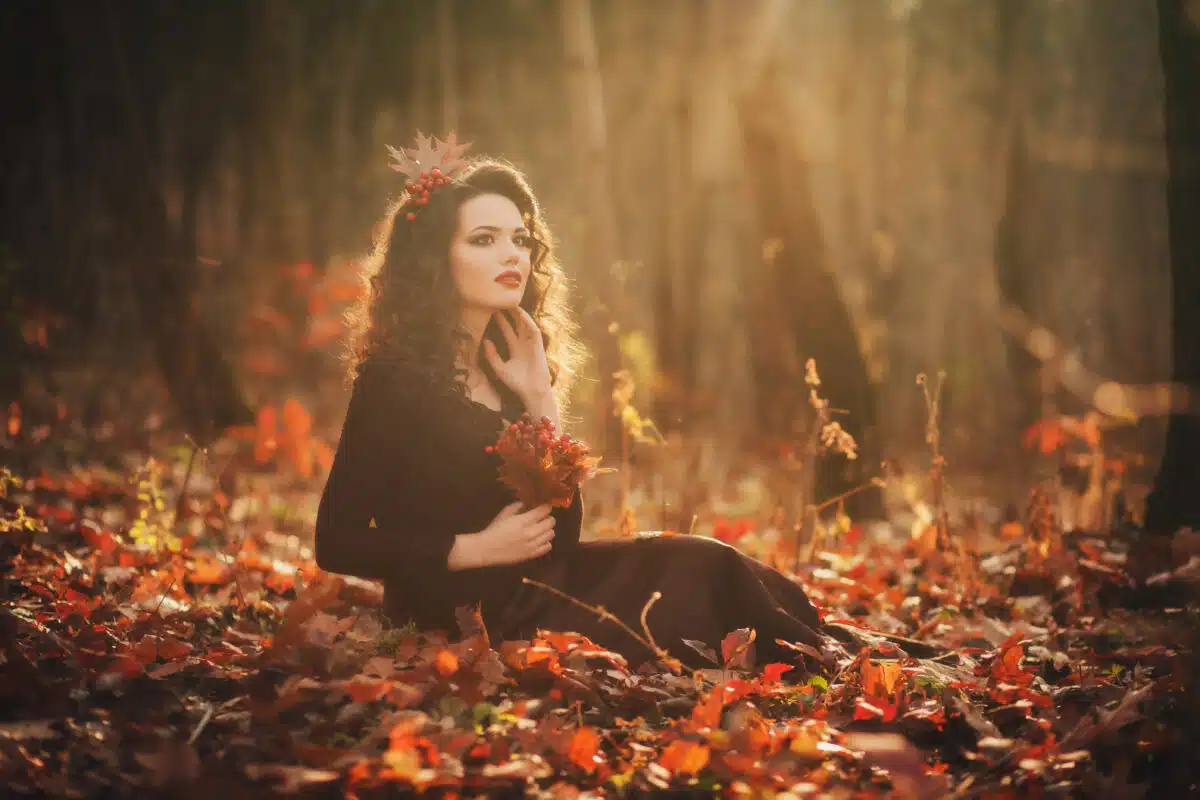
“The Huskers” by John Greenleaf Whittier
It was late in mild October, and the long autumnal rain
Had left the summer harvest-fields all green with grass again;
The first sharp frosts had fallen, leaving all the woodlands gay
With the hues of summer’s rainbow, or the meadow flowers of May.
Through a thin, dry mist, that morning, the sun rose broad and red,
At first a rayless disk of fire, he brightened as he sped;
Yet, even his noontide glory fell chastened and subdued,
On the cornfields and the orchards, and softly pictured wood.
And all that quiet afternoon, slow sloping to the night,
He wove with golden shuttle the haze with yellow light;
Slanting through the painted beeches, he glorified the hill;
And, beneath it, pond and meadow lay brighter, greener still.
And shouting boys in woodland haunts caught glimpses of that sky,
Flecked by the many-tinted leaves, and laughed, they knew not why;
And school-girls, gay with aster-flowers, beside the meadow brooks,
Mingled the glow of autumn with the sunshine of sweet looks.
From spire and barn looked westerly the patient weathercocks;
But even the birches on the hill stood motionless as rocks.
No sound was in the woodlands, save the squirrel’s dropping shell,
And the yellow leaves among the boughs, low rustling as they fell.
The summer grains were harvested; the stubblefields lay dry,
Where June winds rolled, in light and shade, the pale green waves of rye;
But still, on gentle hill-slopes, in valleys fringed with wood,
Ungathered, bleaching in the sun, the heavy corn crop stood.
Bent low, by autumn’s wind and rain, through husks that, dry and sere,
Unfolded from their ripened charge, shone out the yellow ear;
Beneath, the turnip lay concealed, in many a verdant fold,
And glistened in the slanting light the pumpkin’s sphere of gold.
There wrought the busy harvesters; and many a creaking wain
Bore slowly to the long barn-floor is load of husk and grain;
Till broad and red, as when he rose, the sun sank down, at last,
And like a merry guest’s farewell, the day in brightness passed.
And lo! as through the western pines, on meadow, stream, and pond,
Flamed the red radiance of a sky, set all afire beyond,
Slowly o’er the eastern sea-bluffs a milder glory shone,
And the sunset and the moonrise were mingled into one!
As thus into the quiet night the twilight lapsed away,
And deeper in the brightening moon the tranquil shadows lay;
From many a brown old farm-house, and hamlet without name,
Their milking and their home-tasks done, the merry huskers came.
Swung o’er the heaped-up harvest, from pitchforks in the mow,
Shone dimly down the lanterns on the pleasant scene below;
The growing pile of husks behind, the golden ears before,
And laughing eyes and busy hands and brown cheeks glimmering o’er.
Half hidden, in a quiet nook, serene of look and heart,
Talking their old times over, the old men sat apart;
While up and down the unhusked pile, or nestling in its shade,
At hide-and-seek, with laugh and shout, the happy children played.
Urged by the good host’s daughter, a maiden young and fair,
Lifting to light her sweet blue eyes and pride of soft brown hair,
The master of the village school, sleek of hair and smooth of tongue,
To the quaint tune of some old psalm, a husking-ballad sung.
“The Rainbow” by Charles Tennyson
Hung on the shower that fronts the golden west,
The rainbow bursts like magic on mine eyes,
In hues of elden promise there imprest,
Frail in its date, eternal in its guise.
The vision is so lovely that I feel
My heart endued with beauty like its own,
And taking an indissoluble seal
From what is here a moment, and is gone.
It lies so soft on the full-breasted storm,
New born o’ the middle air, and dewy-pure,
And tricked in nature’s choicest garniture;
What can be seen of lovelier dye or form?
While all the groves assume a ghastly stain,
Caught from the leaden rack and shining rain.
“The King Cup” by John Harris
Came a shower o’er rush- lands moory;
Came a rainbow stained with glory;
Came a sun -flash shiring, -streaming;
Came the moonbeams softly gleaming;
Came dim eve, when flocks were folden,
And at morn a KING CUP golden.
Old men saw it, smiled, and blest it;
Children lovingly caressed it;
Joyous maid and matron knew it;
Schoolboys clapped their hands to view it;
Mothers sang the ditty olden.
Of the shining KING CUP golden.
Lovely sunsets sunsets follow:
Then they glowed in every hollow,
In the meadows, dells, and ditches,
Under thorns and hazel switches,
Where the nightly flocks were folden;
Everywhere, —the KING CUPS golden.
Care went forth and wept for gladness:
Sunshine is no time for sadness.
More than books of song or story,
Penned by bards and sages hoary
In the mighty centuries olden,
Learn we from the KING CUPS golden.
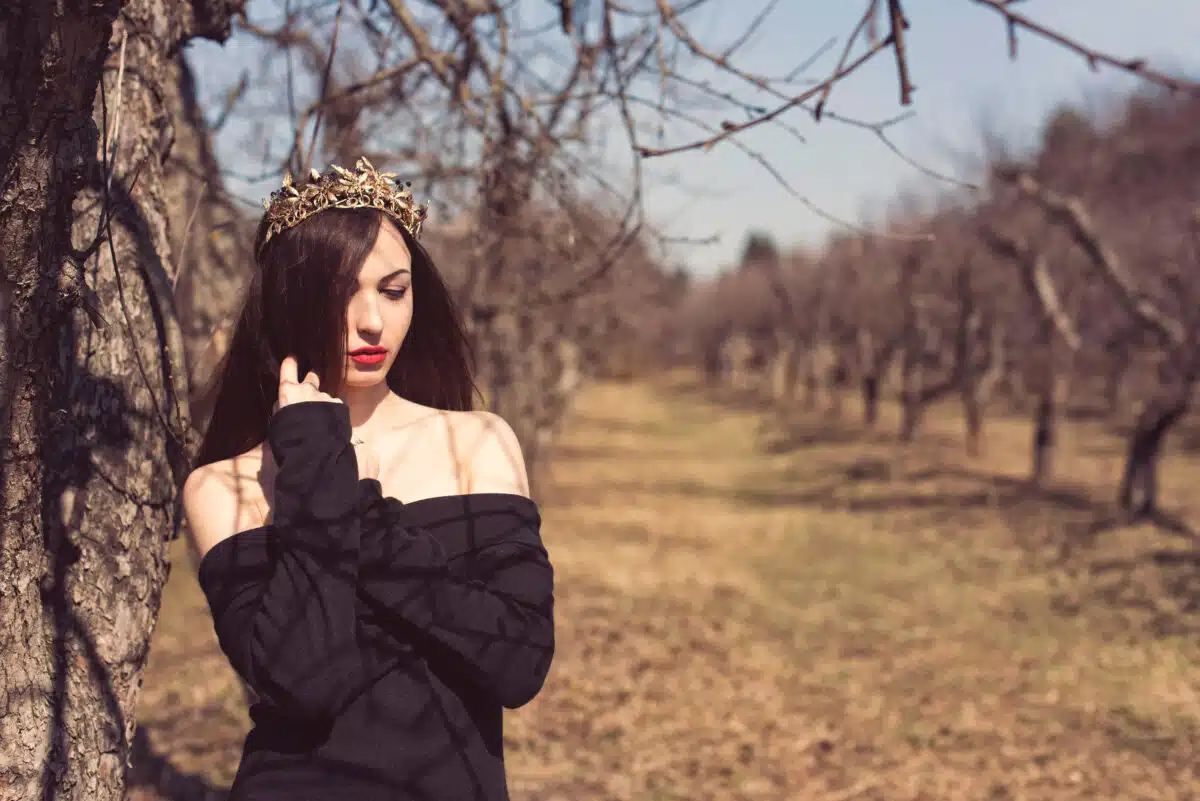
“XLII: Problems” by Emily Dickinson
Bring me the sunset in a cup,
Reckon the morning’s flagons up
And say how many Dew,
Tell me how far the morning leaps
Tell me what time the weaver sleeps
Who spun the breadth of blue!
Write me how many notes there be
In the new Robin’s ecstasy
Among astonished boughs
How many trips the Tortoise makes
How many cups the Bee partakes,
The Debauchee of Dews!
Also, who laid the Rainbow’s piers,
Also, who leads the docile spheres
By withes of supple blue?
Whose fingers string the stalactite
Who counts the wampum of the night
To see that none is due?
Who built this little Alban House
And shut the windows down so close
My spirit cannot see?
Who’ll let me out some gala day
With implements to fly away,
Passing Pomposity?
Poems About Rainbows and Death
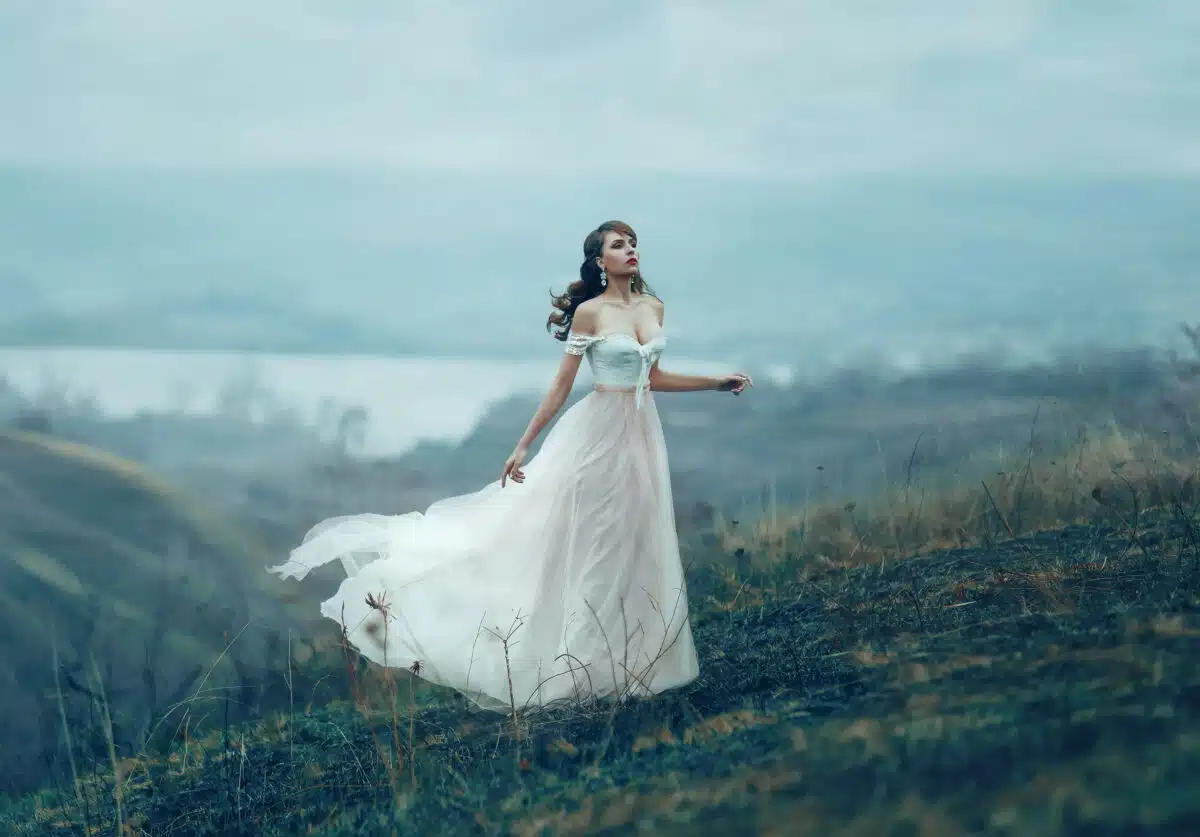
“On This Long Storm The Rainbow Rose” by Emily Elizabeth Dickinson
On this long storm the rainbow rose,
On this late morn the sun;
The clouds, like listless elephants,
Horizons straggled down.
The birds rose smiling in their nests,
The gales indeed were done;
Alas! how heedless were the eyes
On whom the summer shone!
The quiet nonchalance of death
No daybreak can bestir;
The slow archangel’s syllables
Must awaken her.
“The Rainbow” by H. P. Nichols
“What is the rainbow, mother dear,
With many-colored light?
Have the clouds parted just to show
The floor of heaven so bright?
“Or is it wings of angels pure
That touch along the sky?
And do they come that we may see
How fair is all on high?
“Or, mother, on that shining arch
Do spirits rise above?
And on that bended bow ascend
Where all is light and love?
“How beautiful must be that road!
Why should we call those back,
Who travel to the better land
On such a sunny track?
“Why did you weep when brother died?
Did you not know that he
On that delightful path must tread,
Ere he in heaven could be?”
“My dearest child, we cannot know,
Or trace the spirit’s flight,
For sin and sorrow draw their veil
Across our mortal sight.
“If–as the rainbow takes its hues
Of beauty from the sun–
We strive to live like Christ our Lord,
The meek and holy One,–
“Then shall we dwell in Heaven’s clear day,
Which knows nor night nor moon,
For, ever, from the Father’s throne
Beams high and cloudless noon.”
“Fancies” by Mrs. Minot Carter
If we could return from our last long rest
And seek out the ones we loved the best,
Though not in a form to cause them fear,
Just gently to let them feel us near,
Would we come in the scent of the evening flowers
Bringing to mind past happy hours?
Would we come in the song of the mourning dove
Recalling to them our endless love?
Would we come in the sound of the falling rain
Telling them gladly “We shall meet again”?
Would we come in the silently falling snow
With memories of rosy cheeks long ago?
Would we come in the rainbow or sunset’s hue
Repeating to them “Be true, be true”?
Would we speak in some sad sweet song’s refrain
Bidding them wait in gladness, not pain?
These are but fancies, faint and dim;
For dare we question the wisdom of Him
Who gave us through death the victory sweet
To be with our loved ones in joy complete?
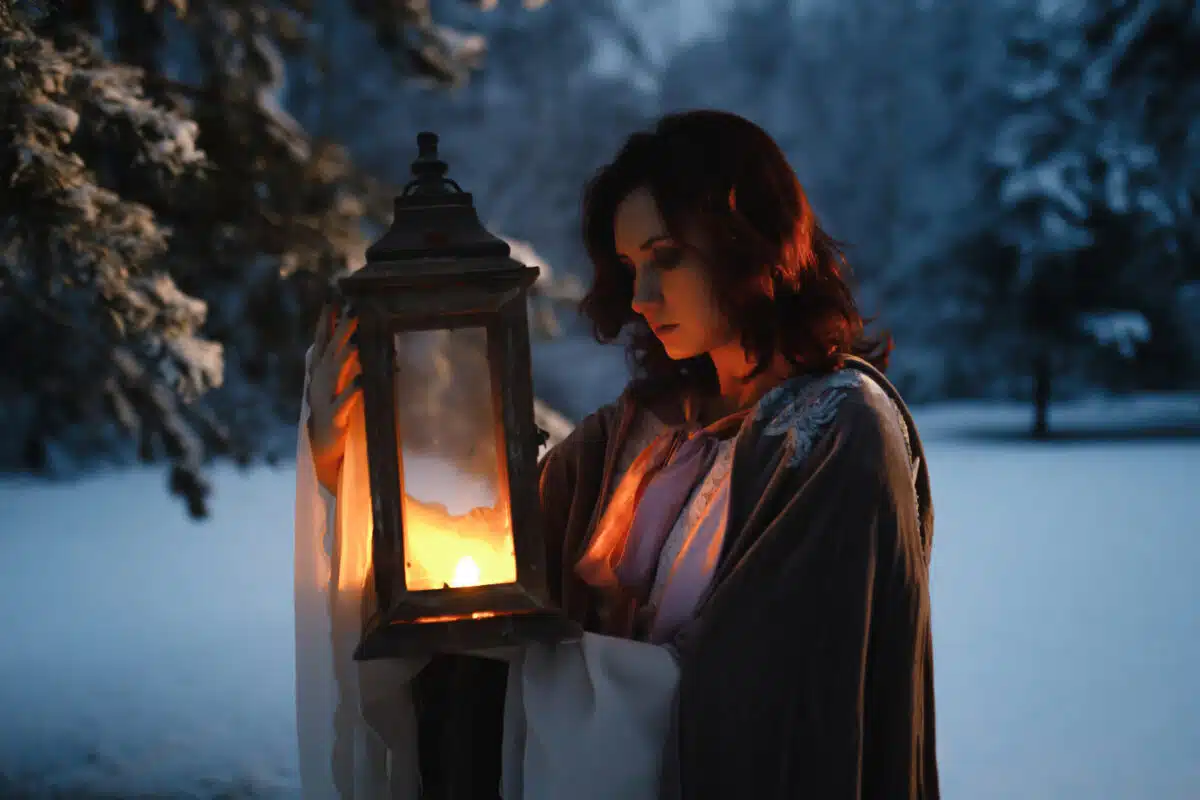
“Lines: When the Lamp is Shattered” by Percy Bysshe Shelley
When the lamp is shattered,
The light in the dust lies dead;
When the cloud is scattered,
The rainbow’s glory is shed;
When the lute is broken,
Sweet tones are remembered not;
When the lips have spoken,
Loved accents are soon forgot.
As music and splendor
Survive not the lamp and the lute,
The heart’s echoes render
No song when the spirit is mute:–
No song but sad dirges,
Like the wind through a ruined cell,
Or the mournful surges
That ring the dead seaman’s knell.
When hearts have once mingled,
Love first leaves the well-built nest;
The weak one is singled
To endure what it once possessed.
O Love! who bewailest
The frailty of all things here,
Why choose you the frailest
For your cradle, your home, and your bier?
Its passions will rock thee,
As the storms rock the ravens on high;
Bright reason will mock thee,
Like the sun from a wintry sky.
From thy nest every rafter
Will rot, and thine eagle home
Leave thee naked to laughter,
When leaves fall and cold winds come.
“Mildew” by Charlotte Dacre
Behold, within that cavern drear and dank,
Whose walls in rainbow tints so dimly shine,
A wretch, with swollen eyes and tresses lank,
Does on a heap of mould’ring leaves recline.
Unwholsome dews for ever him surround,
From his damp couch he scarcely ever hies,
Save when blue vapours, issuing from the ground,
Lure him abroad, to catch them as they rise.
Or else at eve the dripping rock he loves,
Or the moist edge of new‐dug grave, full well;
To get the sea spray too at night he roves,
And, gem’d with trickling drops, then seeks his cell.
Such his delights, his green and purple cheek,
His bloated form, his chill, discolour’d hand
He would not change; and if he guests would seek,
He steals among the church‐yard’s grisly hand.
“Amanda’s Inventory” by Julia Ward Howe
This is my hat: behold its upstart plume,
Soaring like pride, that even in heaven asks room!
This is my cloak of scarlet splendor rare,
A saucy challenge to the sunset glare.
Behold my coach of state and pony chaise,
A fairy pleasure for the summer days;
The seeds that fly, like lightnings in a leash,
With their rude Jove, subservient to my wish.
Here are my jewels: each a fortune holds;
A starving artist planned the graceful moulds:
Here hang my dresses in composed array,
A rainbow with a hue for every day.
These are my lovers, registered in date,
Who, with my dowry, seek myself to mate.
The haughtiest wooer wins me for his bride:
Who asks affection? Pride should wed with pride.
These are my friends, who hourly come or send,
Pleased with my notice and a finger-end;
Yonder’s my parson, proud to share my feast;
My doctor’s there, a sycophantic beast.
This is my villa, where I take my ease
With flowers well-ordered, and ambitious trees;
And this—what sudden spectre stays my breath?
Amanda, poor Amanda! this is death.
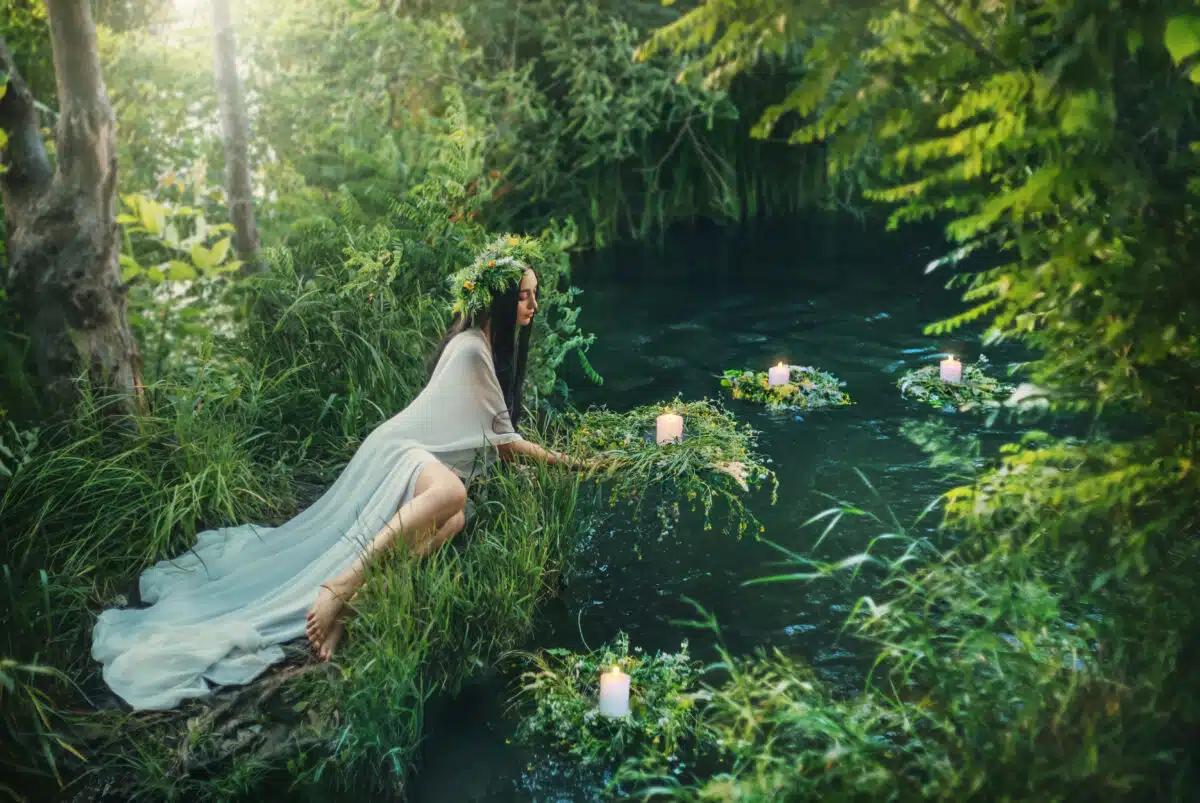
“The Night Displays the Stars” by Thomas Walsh
The storm displays the rainbow,
The night displays the stars,
And twilight’s gathering darkness
The sunset’s golden bars.
The rain begems the meadow
With shining rills of light,
And fills the flowers’ dew-cups
With honey clear and bright.
The winter fills the world
With winds of wailing woe,
But clothes the moon-lit valleys
With glist’ning robes of snow.
‘Tis thus, when gloomy shadows
O’erspread us and combine,
The hidden virtues in us
Like stars begin to shine.
And as the starry heavens
Of night surpass the day,
So noble souls in sorrow
Their loftiness display.
But if, when sorrow-smitten,
No virtues in us shine,
Then we are full of darkness,
And void of light divine.
“The Mystic Blue” by D. H. Lawrence
Out of the darkness, fretted sometimes in its sleeping,
Jets of sparks in fountains of blue come leaping
To sight, revealing a secret, numberless secrets keeping.
Sometimes the darkness trapped within a wheel
Runs into speed like a dream, the blue of the steel
Showing the rocking darkness now a-reel.
And out of the invisible, streams of bright blue drops
Rain from the showery heavens, and bright blue crops
Surge from the under-dark to their ladder-tops.
And all the manifold blue and joyous eyes,
The rainbow arching over in the skies,
New sparks of wonder opening in surprise.
All these pure things come foam and spray of the sea
Of Darkness abundant, which shaken mysteriously,
Breaks into dazzle of living, as dolphins that leap from the sea
Of midnight shake it to fire, so the secret of death we see.
“The Rainbow” by Amelia Welby
I sometimes have thoughts, in my loneliest hours,
That lie on my heart like the dew on the flowers,
Of a ramble I took one bright afternoon,
When my heart was as light as a blossom in June;
The green earth was moist with the late fallen showers,
The breeze fluttered down and blew open the flowers,
While a single white cloud to its haven of rest,
On the white wing of peace, floated off in the west.
As I threw back my tresses to catch the cool breeze,
That scattered the raindrops and dimpled the seas,
Far up the blue sky a fair rainbow unrolled
Its soft tinted pinions of purple and gold.
“‘T was born in a moment, yet, quick as its birth,
It had stretched to the uttermost ends of the earth,
And, fair as an angel, it floated as free,
With a wing on the earth and a wing on the sea.
How calm was the ocean! how gentle its swell!
Like a woman’s soft bosom it rose and it fell;
While its light sparkling waves, stealing laughingly o’er,
When they saw the fair rainbow, knelt down on the shore.
No sweet hymn ascended, no murmur of prayer,
Yet I felt that the spirit of worship was there,
And bent my young head, in devotion and love,
Neath the form of an angel that floated above.
How wide was the sweep of its beautiful wings!
How boundless its circle! how radiant its rings!
If I looked on the sky, it was suspended in air;
If I looked on the ocean, the rainbow was there;
Thus forming a girdle, as brilliant and whole
As the thoughts of the rainbow that circled my sou
Like the wing of the Deity, calmly unfurled,
It bent from the cloud and encircled the world.
There are moments, I think, when the spirit receives
Whole volumes of thought on its unwritten leaves,
When the folds of the heart in a moment unclose
Like the innermost leaves from the heart of a rose.
And thus, when the rainbow had passed from the sky,
The thoughts it awoke were too deep to pass by;
It left my full soul, like the wing of a dove,
All fluttering with pleasure and fluttering with love.
I know that each moment of rapture or pain
But shortens the links in life’s mystical chain;
I know that my form, like the bow from the wave,
Must pass from the earth and lie cold in the grave;
Yet O! when death’s shadows my bosom encloud,
When I shrink at the thought of the coffin and shroud,
May Hope, like the rainbow, my spirit enfold
In her beautiful pinions of purple and gold.
Poems About Rainbows and Love
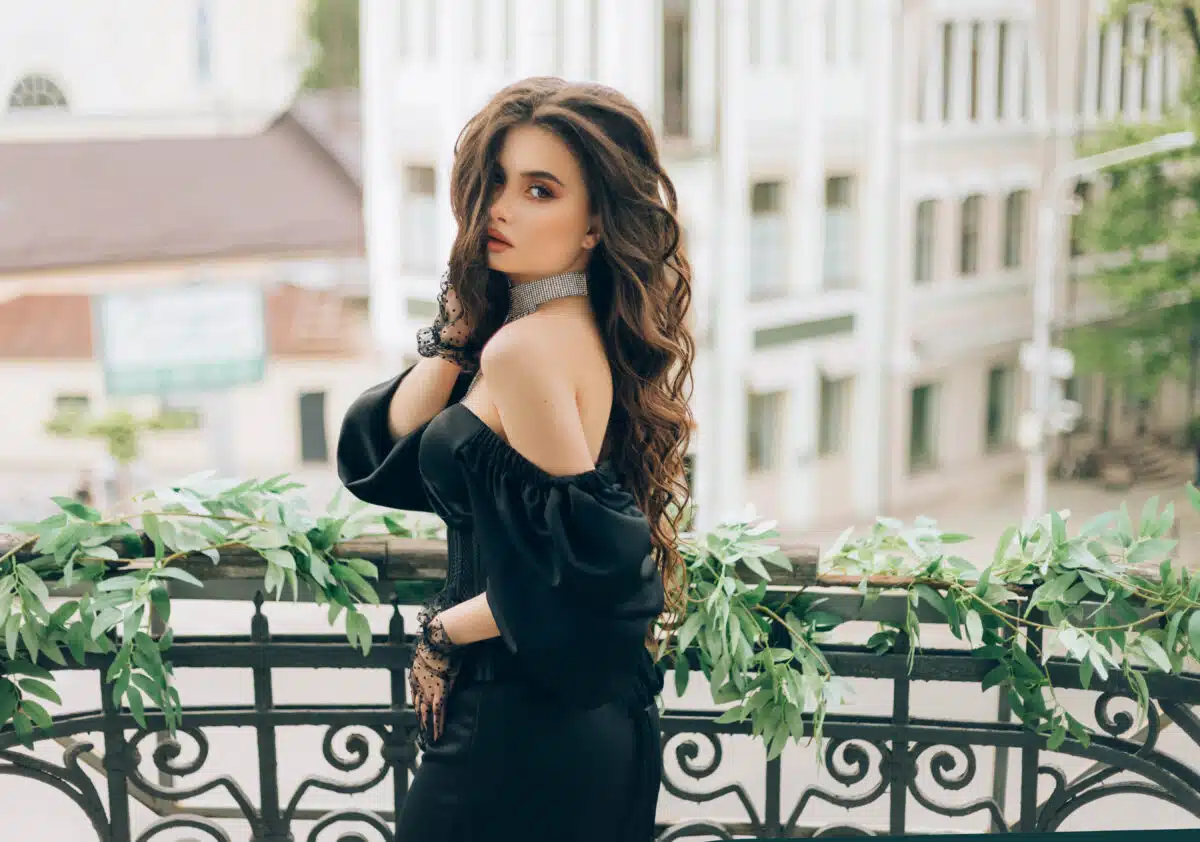
“On The Balcony” by D. H. Lawrence
In front of the sombre mountains, a faint, lost ribbon of rainbow;
And between us and it, the thunder;
And down below in the green wheat, the labourers
Stand like dark stumps, still in the green wheat.
You are near to me, and your naked feet in their sandals,
And through the scent of the balcony’s naked timber
I distinguish the scent of your hair: so now the limber
Lightning falls from heaven.
Adown the pale-green glacier river floats
A dark boat through the gloom – and whither?
The thunder roars. But still we have each other!
The naked lightnings in the heavens dither
And disappear – what have we but each other?
The boat has gone.
“A Broken Rainbow On The Skies Of May” by Madison Julius Cawein
A Broken rainbow on the skies of May,
Touching the dripping roses and low clouds,
And in wet clouds its scattered glories lost:
So in the sorrow of her soul the ghost
Of one great love, of iridescent ray,
Spanning the roses dim of memory,
Against the tumult of life’s rushing crowds
A broken rainbow on the skies of May.
A flashing humming-bird among the flowers,
Deep-coloured blooms; its slender tongue and bill
Sucking the syrups and the calyxed myrrhs,
Till, being full of sweets, away it whirrs:
Such was his love that won her heart’s rich bowers
To give to him their all, their honied showers,
The bloom from which he drank his body’s fill
A flashing humming-bird among the flowers.
A moon, moth-white, that through long mists of fleece
Moves amber-girt into a bulk of black,
And, lost to vision, rims the black with froth:
A love that swept its moon, like some great moth,
Across the heaven of her soul’s young peace;
And, smoothly passing, in the clouds did cease
Of time, through which its burning light comes back
A moon, moth-white, that moves through mists of fleece.
A bolt of living thunder downward hurled,
Momental blazing from the piled-up storm,
That instants out the mountains and the ocean,
The towering crag, then blots the sight’s commotion:
Love, love that swiftly coming bared the world,
The deeps of life, ’round which fate’s clouds are curled,
And, ceasing, left all night and black alarm
A bolt of living thunder downward hurled.
“The Golden Wedding of Sterling and Sarah Lanier, September 27, 1868” by Sidney Lanier
By the Eldest Grandson
A rainbow span of fifty years,
Painted upon a cloud of tears,
In blue for hopes and red for fears,
Finds end in a golden hour to-day.
Ah, YOU to our childhood the legend told,
‘At the end of the rainbow lies the gold,’
And now in our thrilling hearts we hold
The gold that never will pass away.
Gold crushed from the quartz of a crystal life,
Gold hammered with blows of human strife,
Gold burnt in the love of man and wife,
Till it is pure as the very flame:
Gold that the miser will not have,
Gold that is good beyond the grave,
Gold that the patient and the brave
Amass, neglecting praise and blame.
O golden hour that caps the time
Since, heart to heart like rhyme to rhyme,
You stood and listened to the chime
Of inner bells by spirits rung,
That tinkled many a secret sweet
Concerning how two souls should meet,
And whispered of Time’s flying feet
With a most piquant silver tongue.
O golden day, — a golden crown
For the kingly heads that bowed not down
To win a smile or ‘scape a frown,
Except the smile and frown of Heaven!
Dear heads, still dark with raven hair;
Dear hearts, still white in spite of care;
Dear eyes, still black and bright and fair
As any eyes to mortals given!
Old parents of a restless race,
You miss full many a bonny face
That would have smiled a filial grace
Around your Golden Wedding wine.
But God is good and God is great.
His will be done, if soon or late.
Your dead stand happy in yon Gate
And call you blessed while they shine.
So, drop the tear and dry the eyes.
Your rainbow glitters in the skies.
Here’s golden wine: young, old, arise:
With cups as full as our souls, we say:
‘Two Hearts, that wrought with smiles through tears
This rainbow span of fifty years,
Behold how true, true love appears
True gold for your Golden Wedding day!’
Macon, Georgia, September, 1868
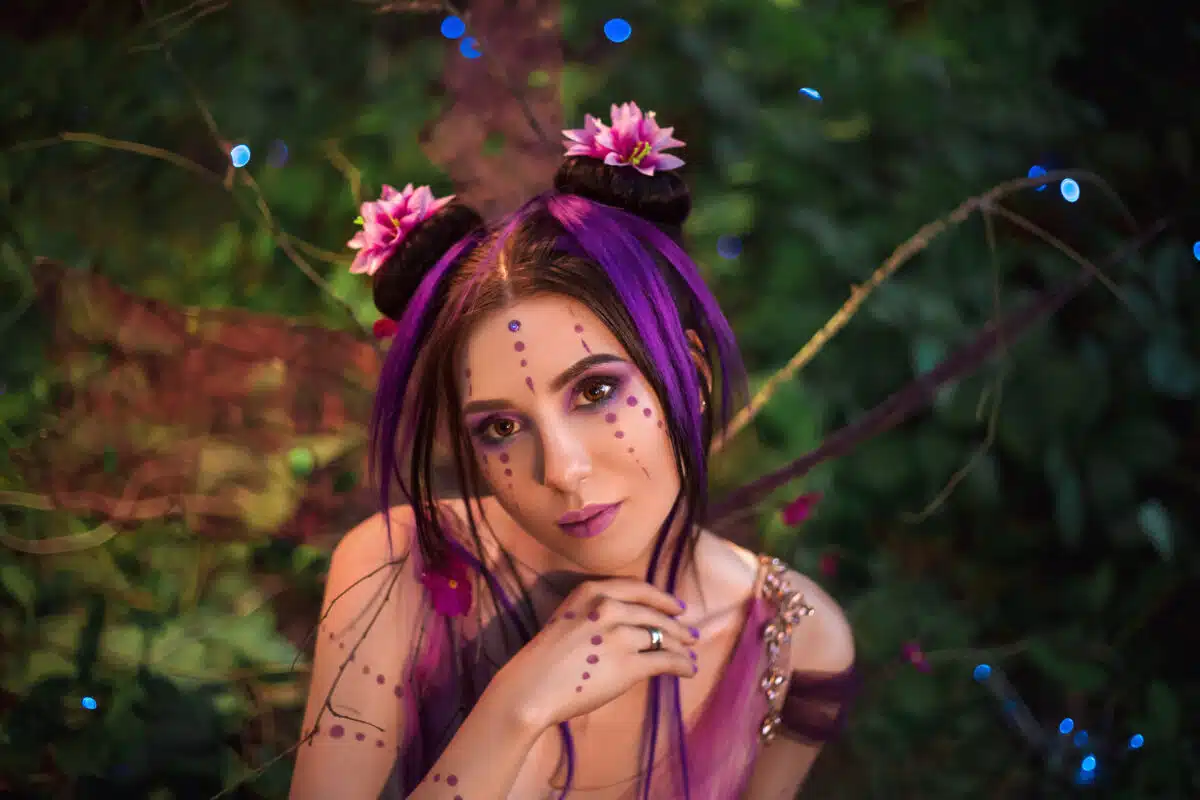
“Adele” by Ameen Rihani
Adele! a name that kindled in the breast
Of France’s first-born of the fairest Muse
A flame in which a thousand colors fuse
And shame the April rainbows of the West;
But I can only stand upon the crest
Of Song’s most sacred Mount and bring excuse
That I have begged, and since the gods refuse,
I steal, and with the theft I thee invest,
A Sun or Moon of Song for all my oceans
Of purest love, an ornament at best,—
A bunch of stars—a wreath for my emotions;
But if the gods with sisters dear are blest,
To me they all must come in joy or sorrow,
From me they all must steal, or beg, or borrow.
“The Rainbow” by Effie Waller Smith
Love is a rainbow that appears
When heaven’s sunshine lights earth’s tears.
All varied colors of the light
Within its beauteous arch unite:
There Passion’s glowing crimson hue
Burns near Truth’s rich and deathless blue;
And Jealousy’s green lights unfold
‘Mid Pleasure’s tints of flame and gold.
O dark life’s stormy sky would seem,
If love’s clear rainbow did not gleam!
“A Birthday” by Christina Rossetti
My heart is like a singing bird
Whose nest is in a water’d shoot;
My heart is like an apple-tree
Whose boughs are bent with thick-set fruit;
My heart is like a rainbow shell
That paddles in a halcyon sea;
My heart is gladder than all these,
Because my love is come to me.
Raise me a daïs of silk and down;
Hang it with vair and purple dyes;
Carve it in doves and pomegranates,
And peacocks with a hundred eyes;
Work it in gold and silver grapes,
In leaves and silver fleurs-de-lys;
Because the birthday of my life
Is come, my love is come to me.
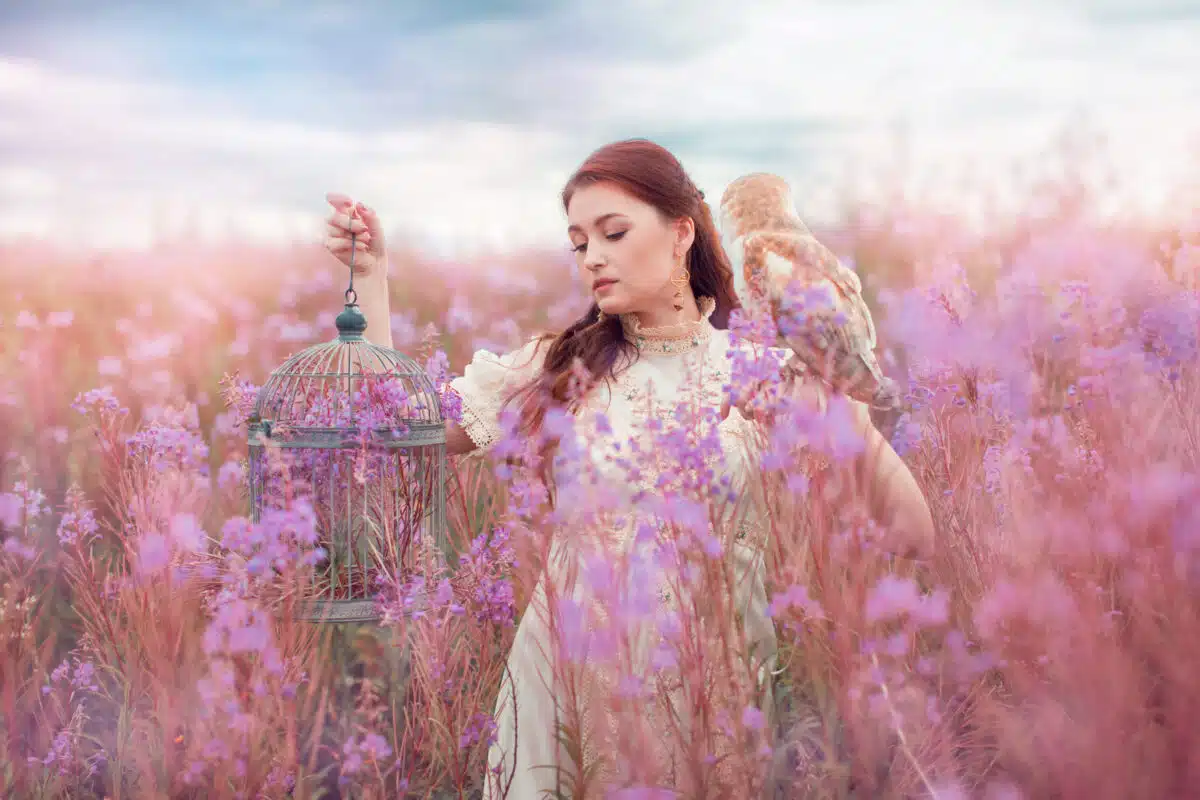
“Sumach and Birds” by Carl Sandburg
If you never came with a pigeon rainbow purple
Shining in the six o’clock September dusk:
If the red sumach on the autumn roads
Never danced on the flame of your eyelashes:
If the red-haws never burst in a million
Crimson fingertwists of your heartcrying:
If all this beauty of yours never crushed me
Then there are many flying acres of birds for me,
Many drumming gray wings going home I shall see,
Many crying voices riding the north wind.
“Loss” by Winifred M. Letts
In losing you I lost my sun and moon
And all the stars that blessed my lonely night.
I lost the hope of Spring, the joy of June,
The Autumn’s peace, the Winter’s firelight.
I lost the zest of living, the sweet sense
Expectant of your step, your smile, your kiss;
I lost all hope and fear and keen suspense
For this cold calm, sans agony, sans bliss.
I lost the rainbow’s gold, the silver key
That gave me freedom of my town of dreams;
I lost the path that leads to Faërie
By beechen glades and heron-haunted streams.
I lost the master word, dear love, the clue
That threads the maze of life when I lost you.
“Lines on Nonsense” by Eliza Lee Follen
Yes, nonsense is a treasure!
I love it from my heart;
The only earthly pleasure
That never will depart.
But, as for stupid reason,
That stalking, ten-foot rule,
She’s always out of season,
A tedious, testy fool.
She’s like a walking steeple,
With a clock for face and eyes,
Still bawling to all people,
Time bids us to be wise.
While nonsense on the spire
A weathercock you’ll find,
Than reason soaring higher,
And changing with the wind.
The clock too oft deceives,
Says what it cannot prove;
While every one believes
The vane that turns above.
Reason oft speaks unbidden,
And chides us to our face;
For which she should be chidden,
And taught to know her place.
While nonsense smiles and chatters,
And says such charming things,
Like youthful hope she flatters;
And like a syren sings.
Her charm’s from fancy borrowed,
For she is fancy’s pet;
Her name is on her forehead,
In rainbow colors set.
Then, nonsense let us cherish,
Far, far from reason’s light;
Lest in her light she perish,
And vanish from our sight.

“Envy of the Flower Buds” by William Lee Popham
The flowers grew together
From the tiny seeds-
And appeared in bud
Just above the weeds.
I rested in the garden
And heard the buds relate-
Their desire of color
And wrote it on my slate.
The rainbow hugged the sky
After an April shower;
Each bud desired a hue
When they became a flower.
“Oh! rainbow,” said the violet,
“I really envy you;
For when I am to blossom-
I pray to have your blue.”
“And I would happy be,”
The rosebud said-
“My dear Mr. Rainbow,
To have your tint of red.”
And the timid lily
Expressed her delight-
While looking at the rainbow
And said: “Just give me white.”
And the morning glory
Had to pause and think-
To select its color
And said: “Oh, give me pink.”
And thus all the flowers
Pleaded to the sky-
And envied rainbow colors-
With a longing sigh.
And later I was walking
Amid that flower dell-
And buds had grown to blossoms
And had a fragrant smell.
The flowers were contented
In coats of red and blue-
And all the other colors;
For “rainbow dreams” came true.
“Love Returned” by Bayard Taylor
He was a boy when first we met;
His eyes were mixed of dew and fire,
And on his candid brow was set
The sweetness of a chaste desire:
But in his veins the pulses beat
Of passion, waiting for its wing,
As ardent veins of summer heat
Throb through the innocence of spring.
As manhood came, his stature grew,
And fiercer burned his restless eyes,
Until I trembled, as he drew
From wedded hearts their young disguise.
Like wind-fed flame his ardor rose,
And brought, like flame, a stormy rain:
In tumult, sweeter than repose,
He tossed the souls of joy and pain.
So many years of absence change!
I knew him not when he returned:
His step was slow, his brow was strange,
His quiet eye no longer burned.
When at my heart I heard his knock,
No voice within his right confessed:
I could not venture to unlock
Its chambers to an alien guest.
Then, at the threshold, spent and worn
With fruitless travel, down he lay:
And I beheld the gleams of morn
On his reviving beauty play.
I knelt, and kissed his holy lips,
I washed his feet with pious care;
And from my life the long eclipse
Drew off; and left his sunshine there.
He burns no more with youthful fire;
He melts no more in foolish tears;
Serene and sweet, his eyes inspire
The steady faith of balanced years.
His folded wings no longer thrill,
But in some peaceful flight of prayer:
He nestles in my heart so still,
I scarcely feel his presence there.
O Love, that stern probation o’er,
Thy calmer blessing is secure!
Thy beauteous feet shall stray no more,
Thy peace and patience shall endure!
The lightest wind deflowers the rose,
The rainbow with the sun departs,
But thou art centred in repose,
And rooted in my heart of hearts!
“The Rainbow” by Vine Colby
Whose doorway was it, in the sordid street,
That gave us shelter from the sudden rain,—
Two vagrant sparrows on a dripping branch,
Waiting a moment to spread wing again?
The beggar children danced through pavement pools
Barefoot and joyous, splashing at their will;
The rain washed green that dusty sycamore
And straws swirled wildly down the gutter’s rill.
Fast-breathing from the run, our hands still clasped,
We leaned out laughing, shaking free our hair
Of dewy drops, while still the clouds poured down
A freshness that made heavenly the air.
Then we both saw, above the sodden world,
The Rainbow like a miracle appear,
And you said, whispering, “Oh, kiss me once
Before it fades!”—“Kiss me then quickly, Dear!”
One warm sweet touch of lips—then forth we went
Oblivious of all the rain and wet.
To-day I saw a rainbow after rain….
My heart remembered then—does yours forget?
